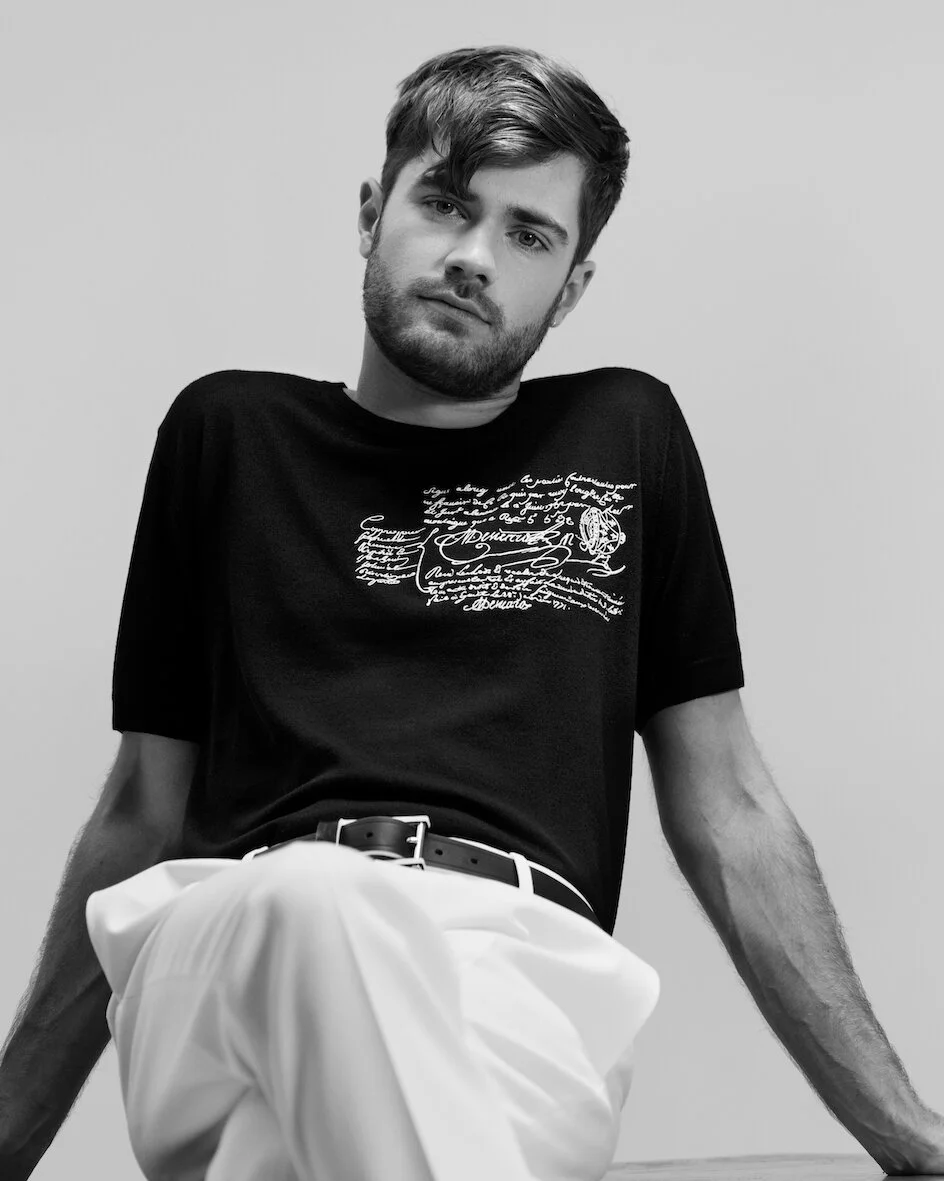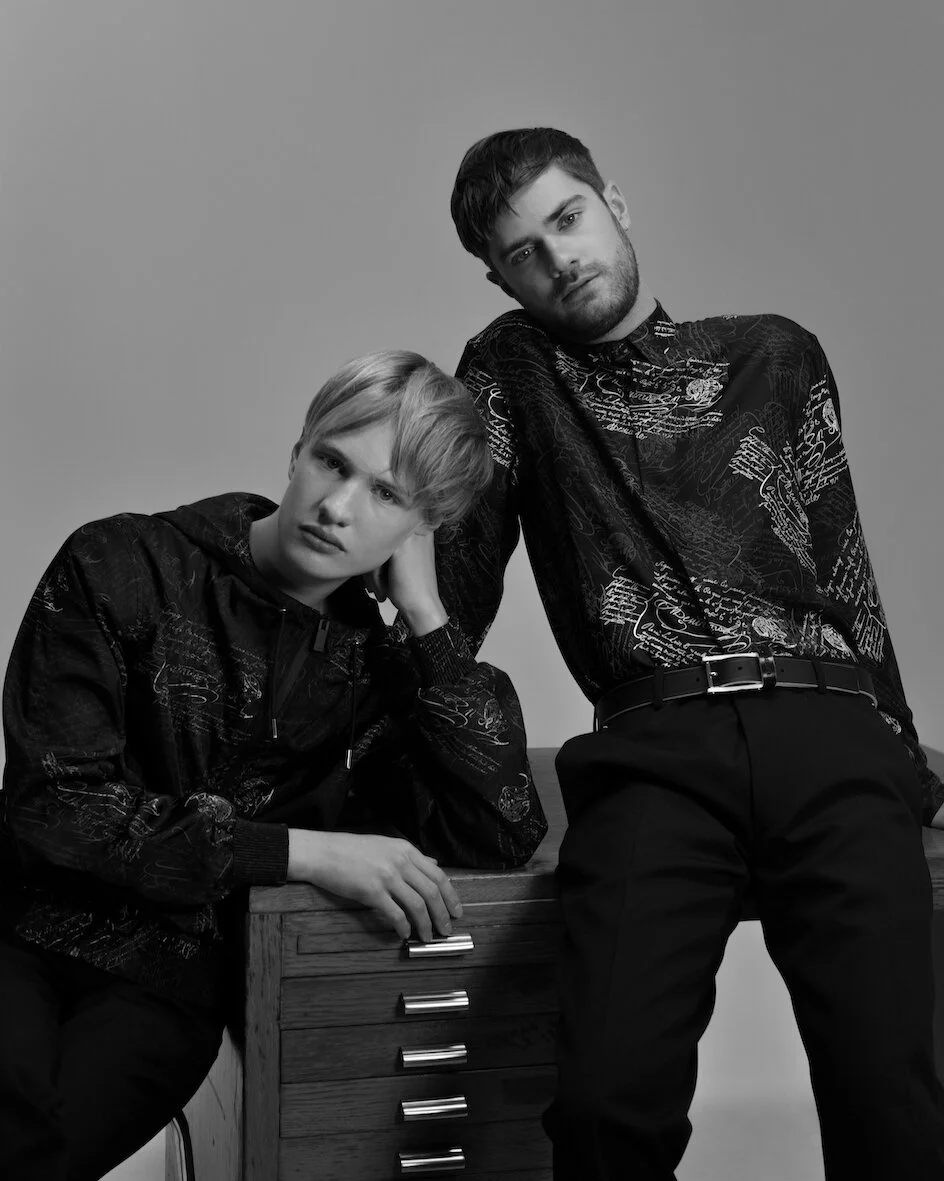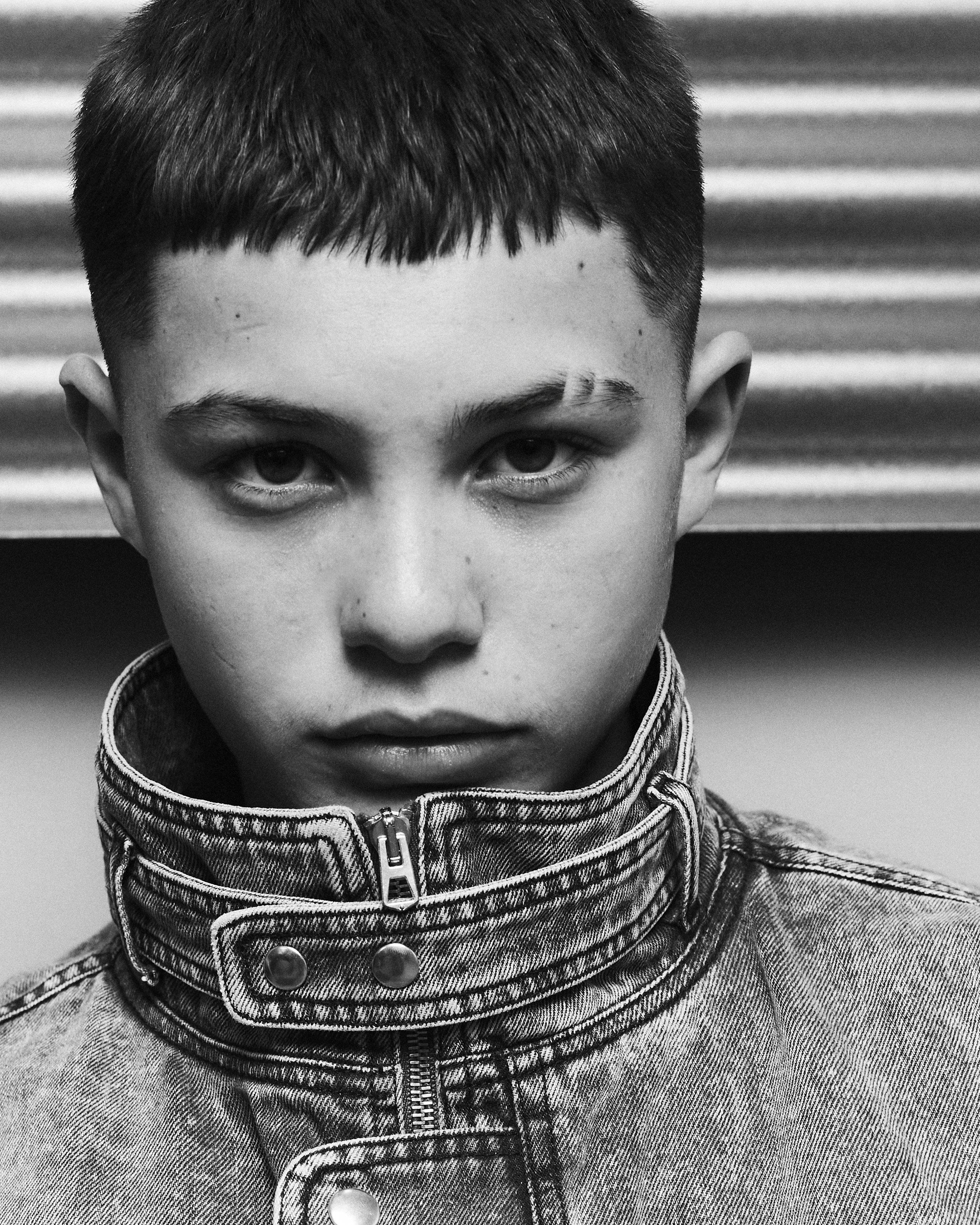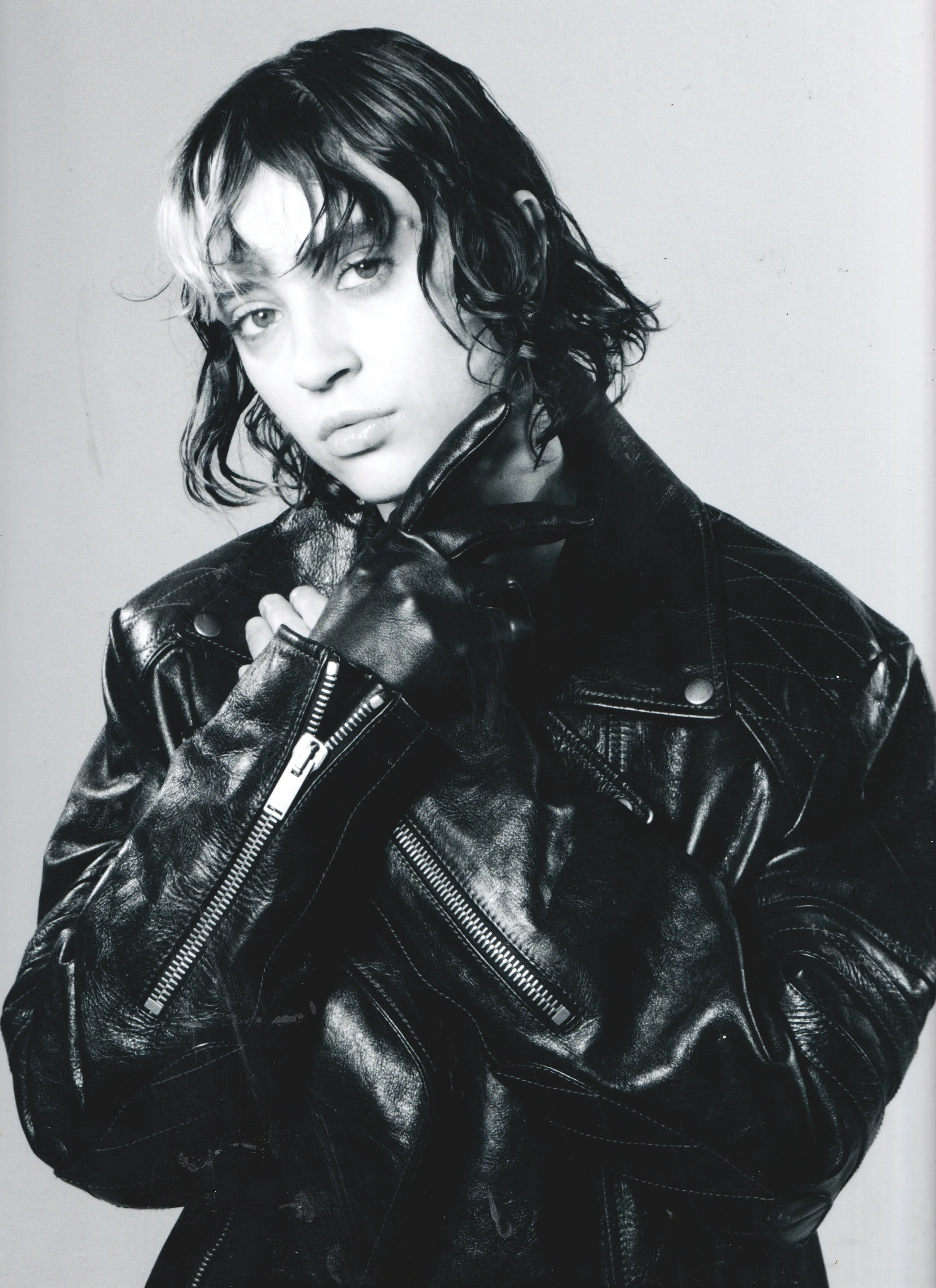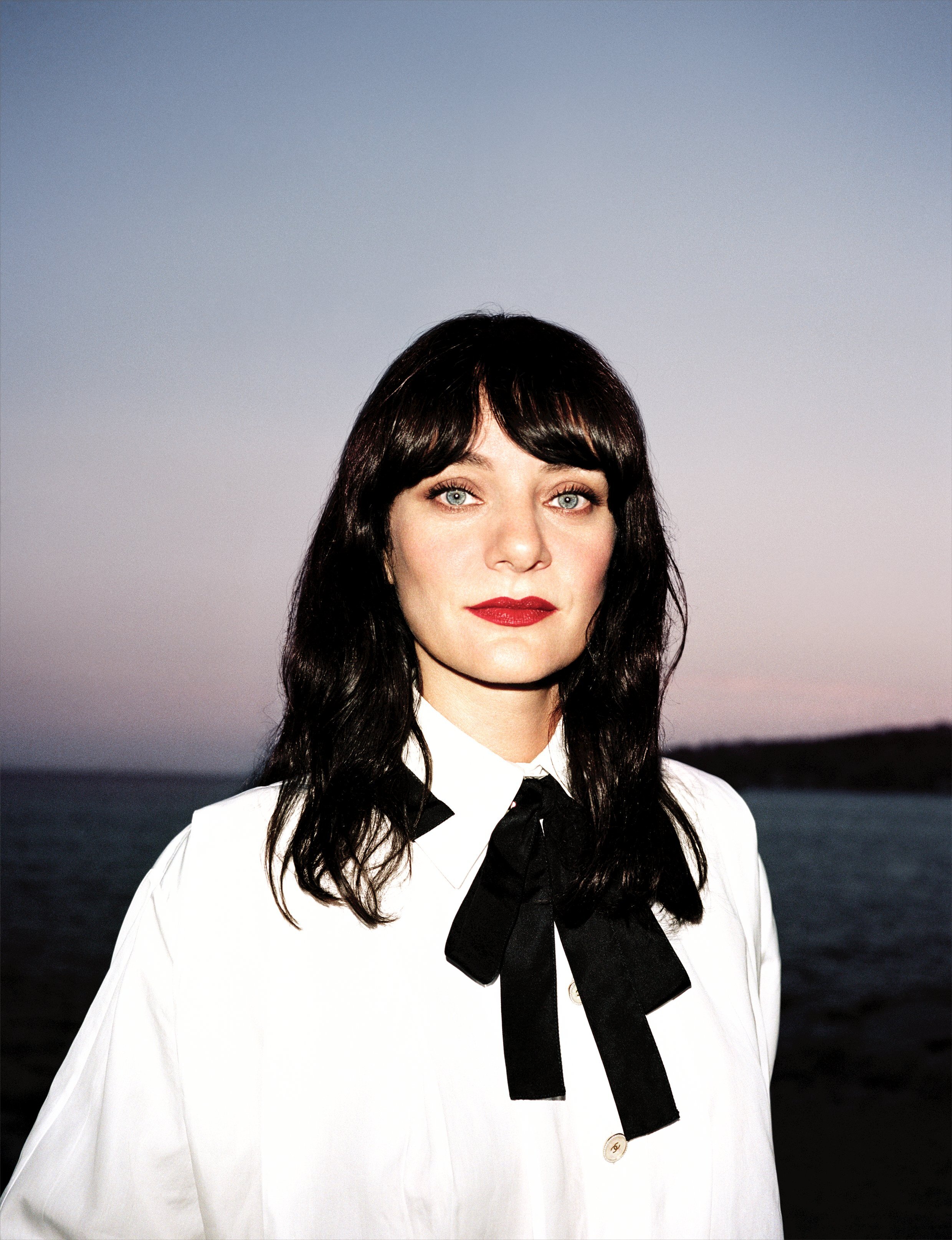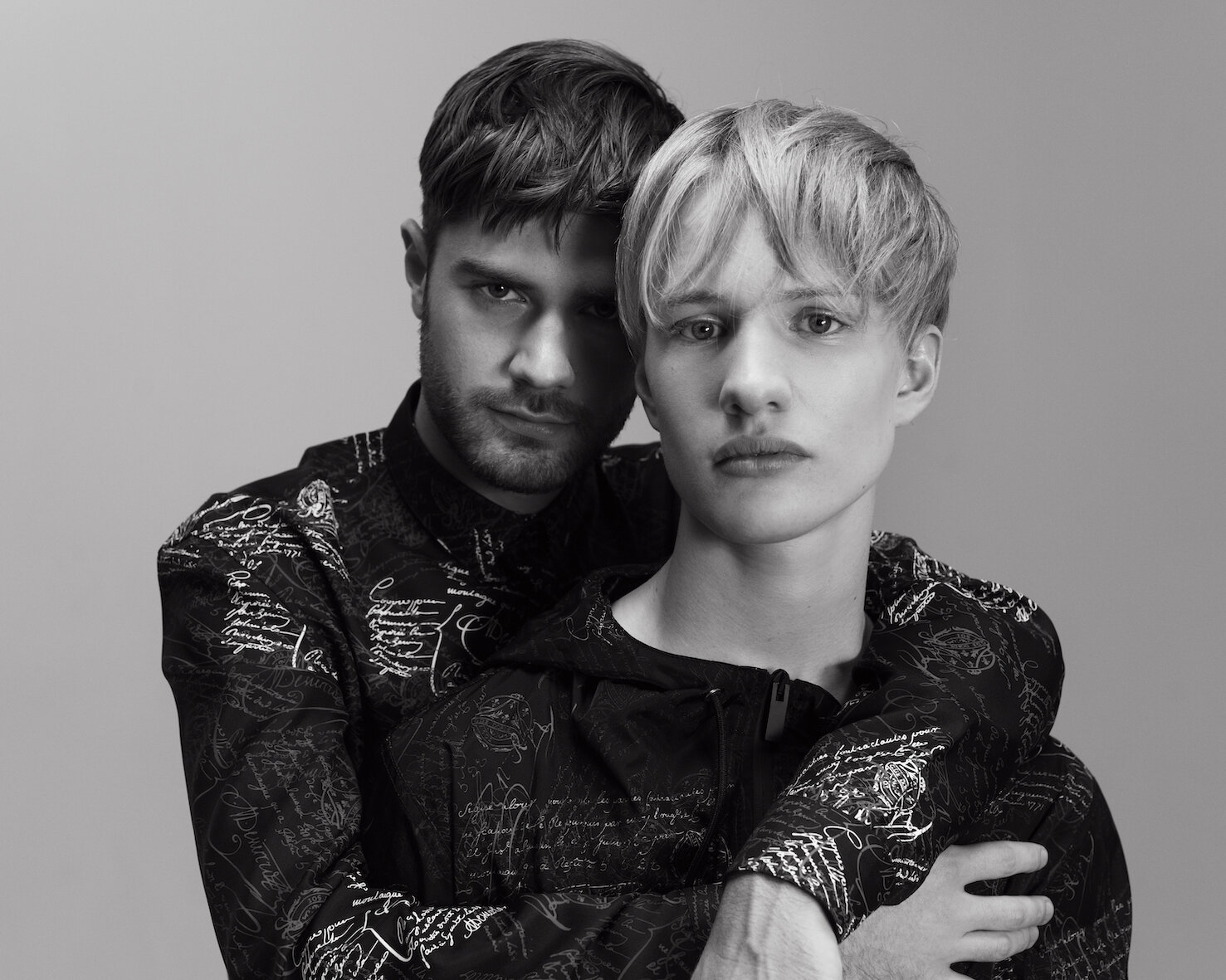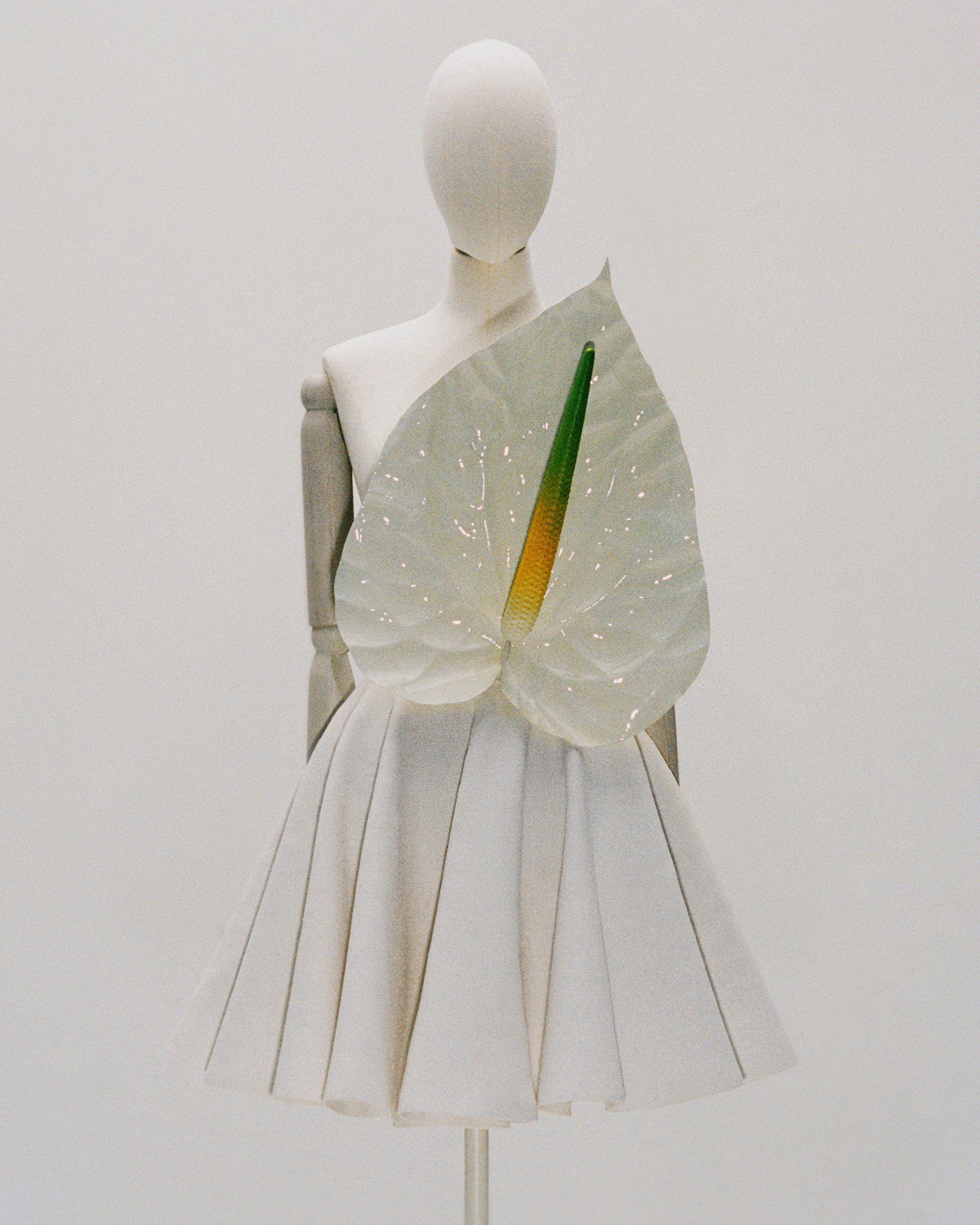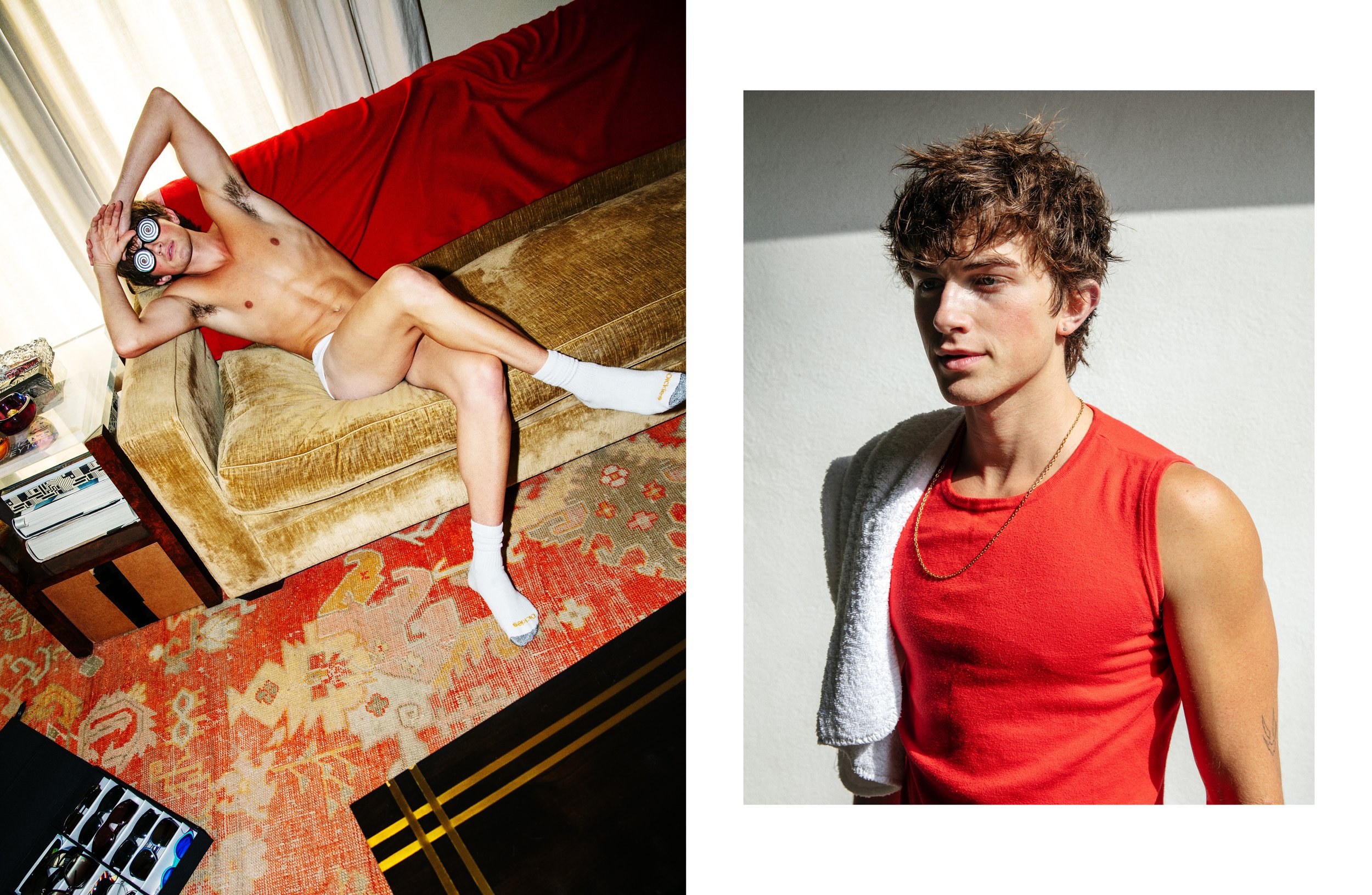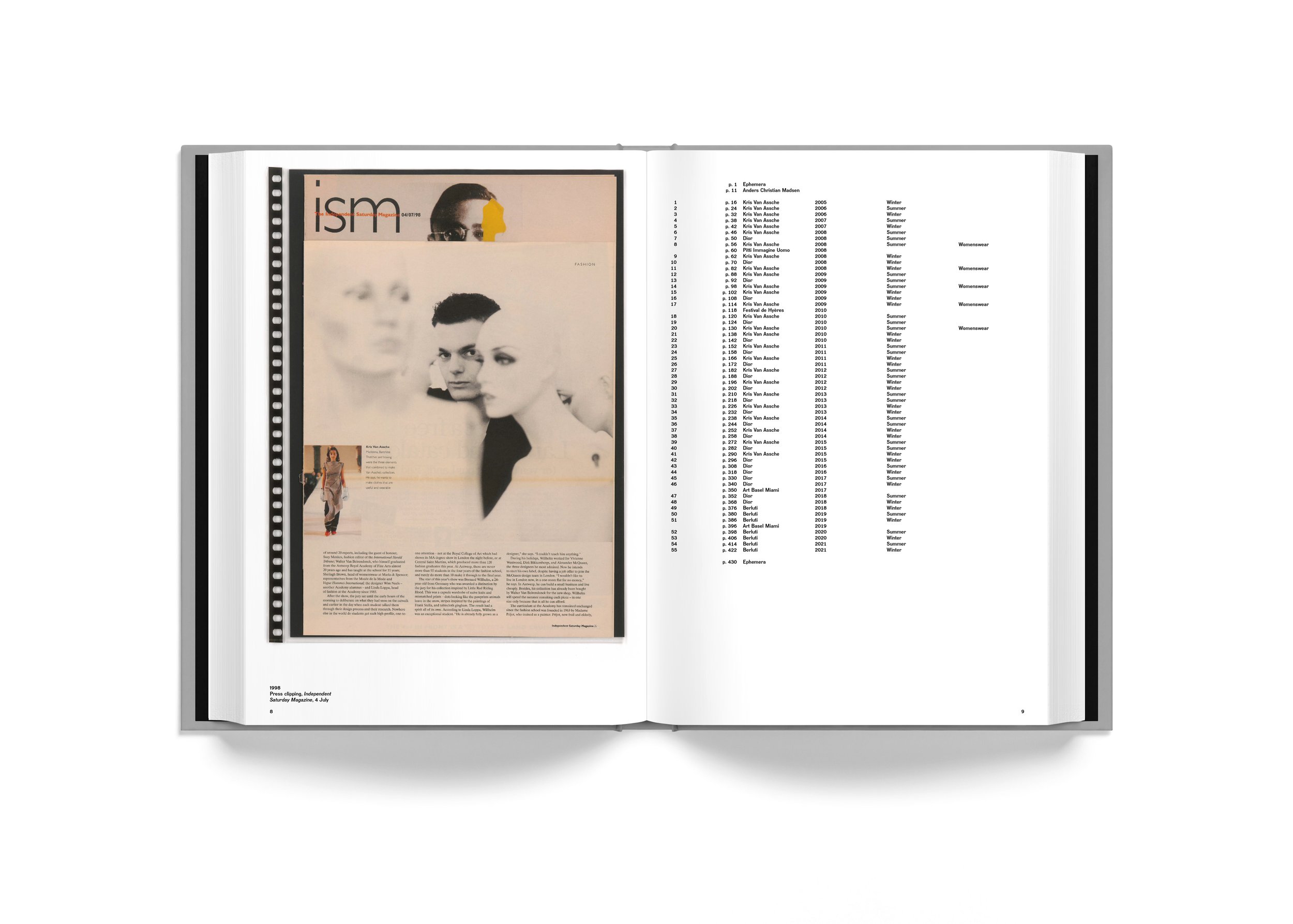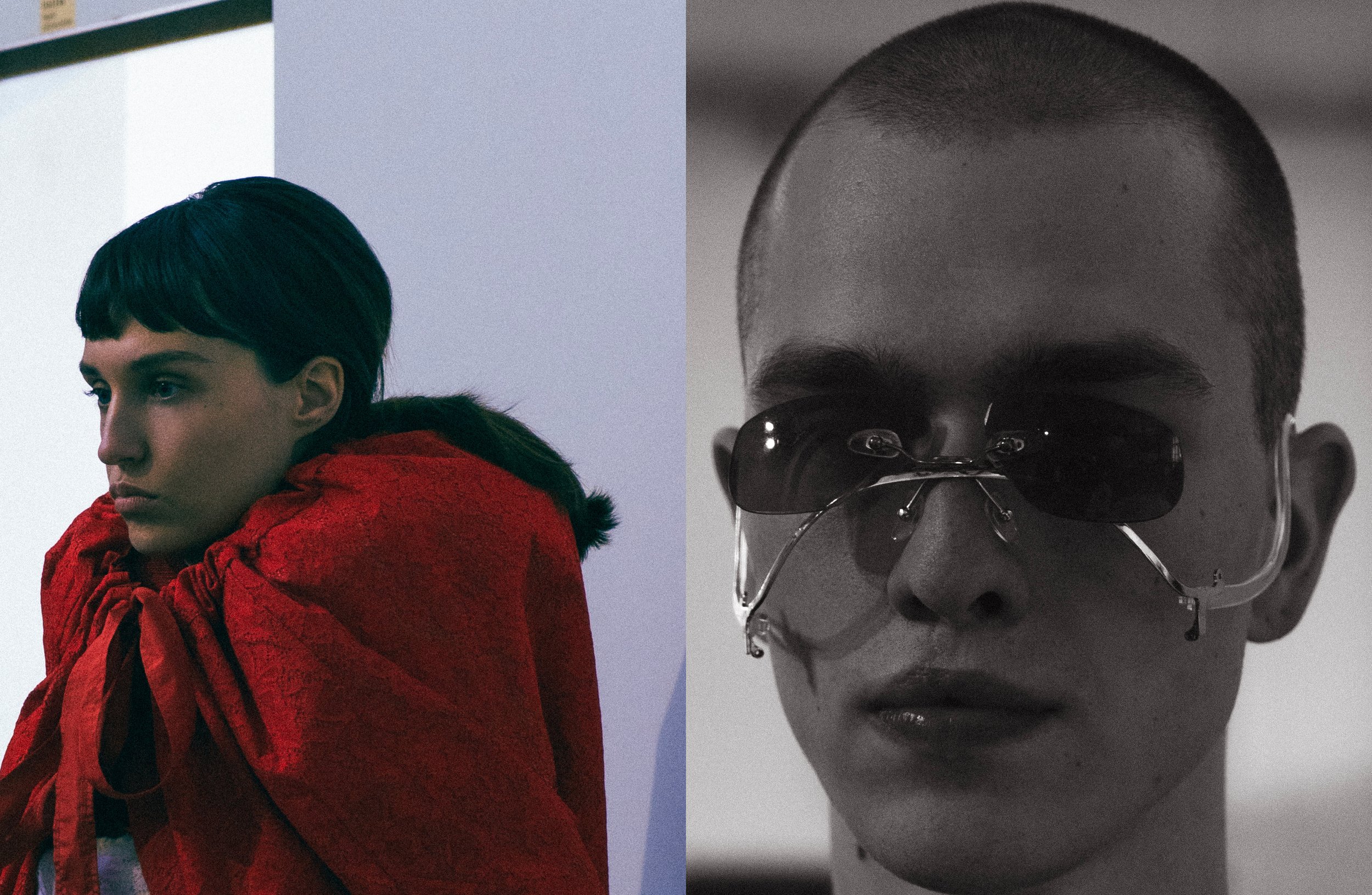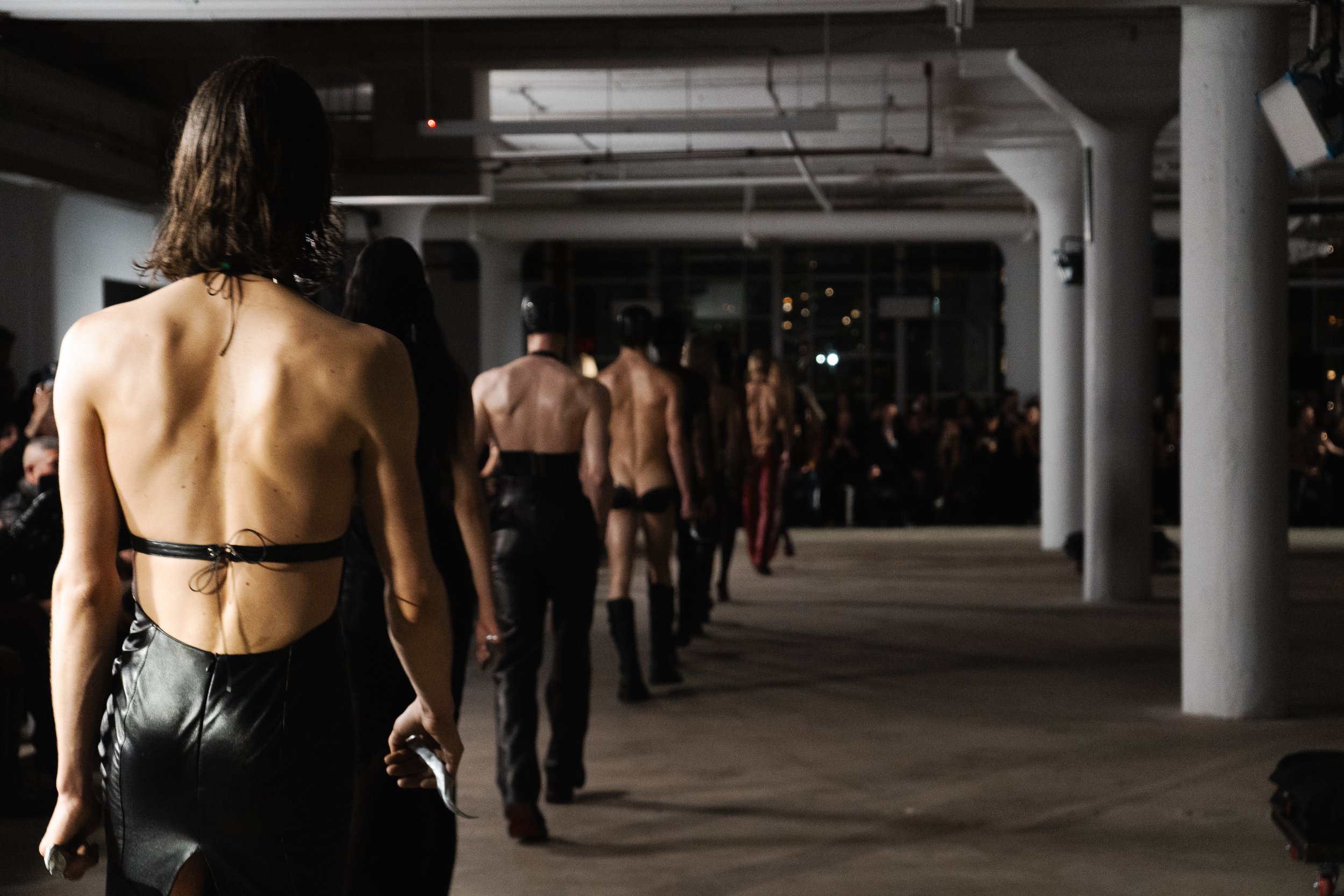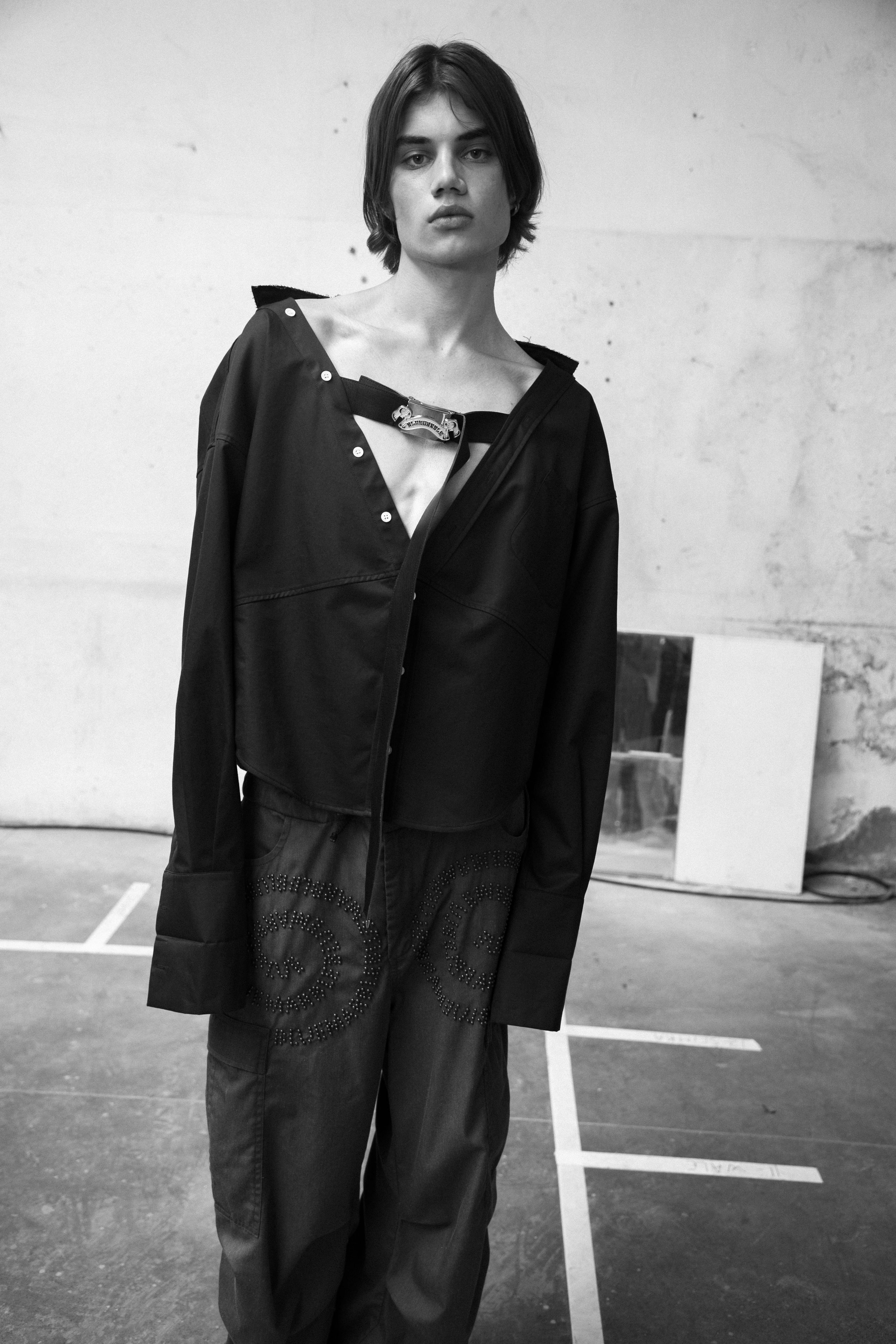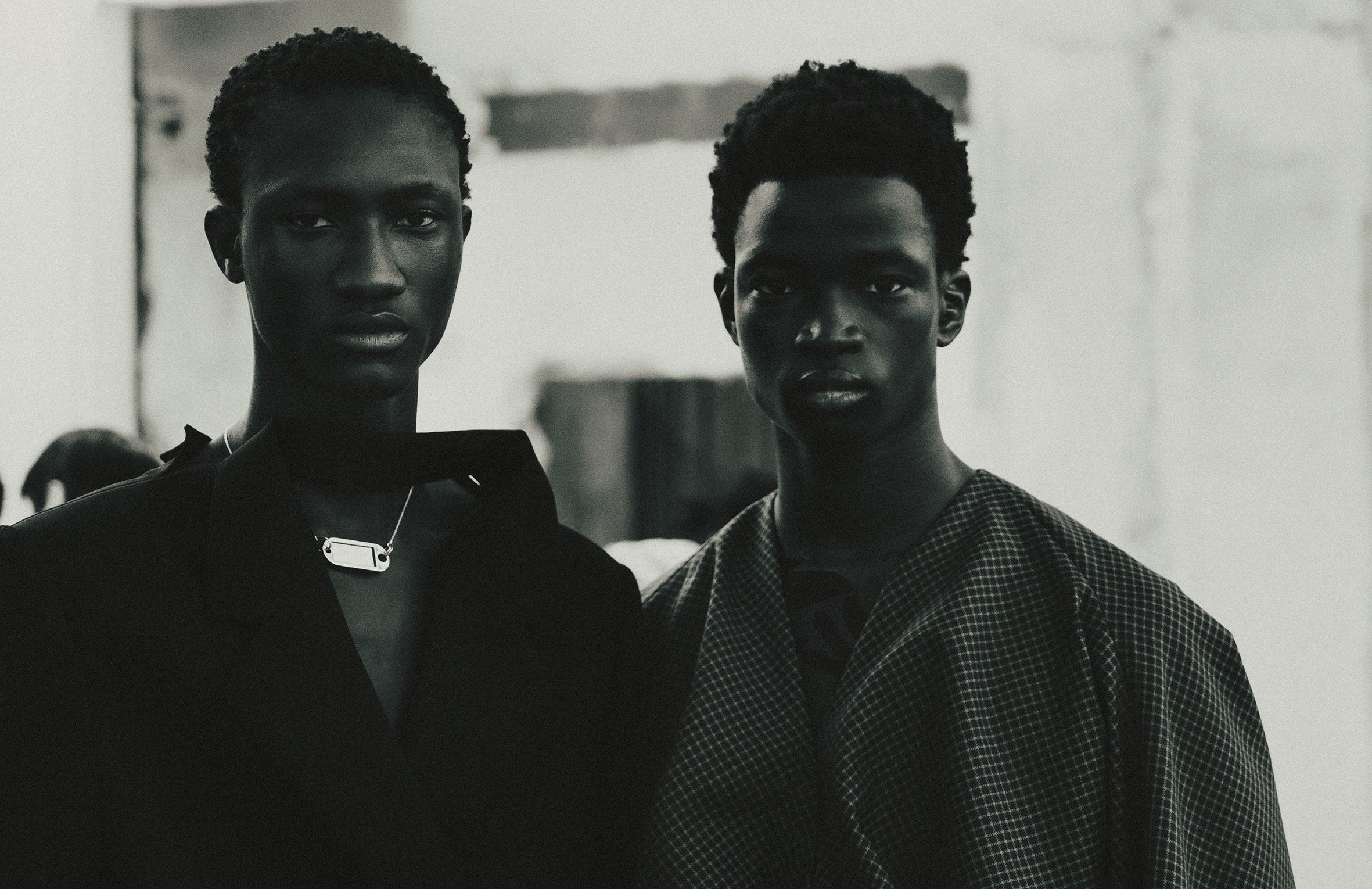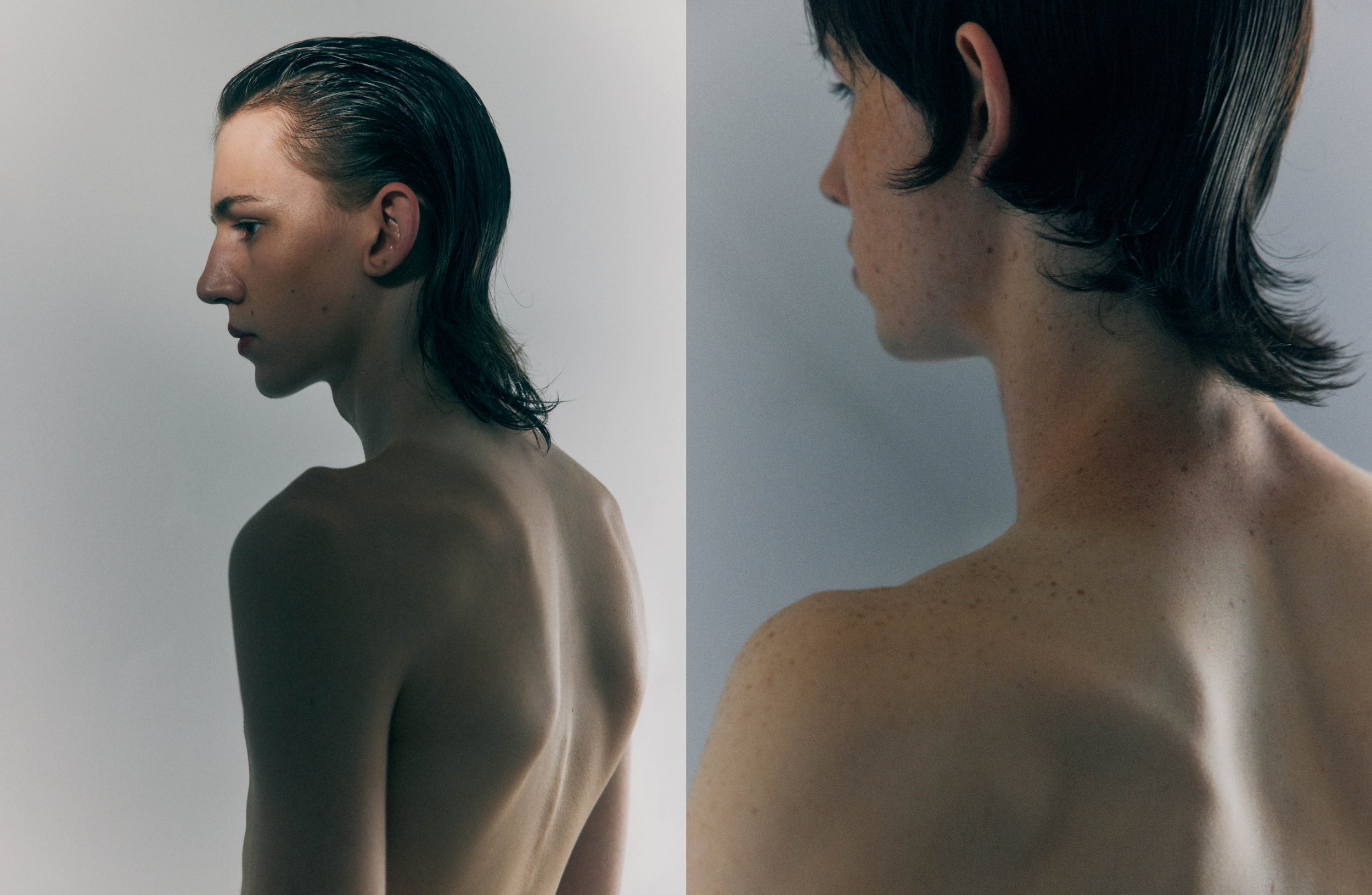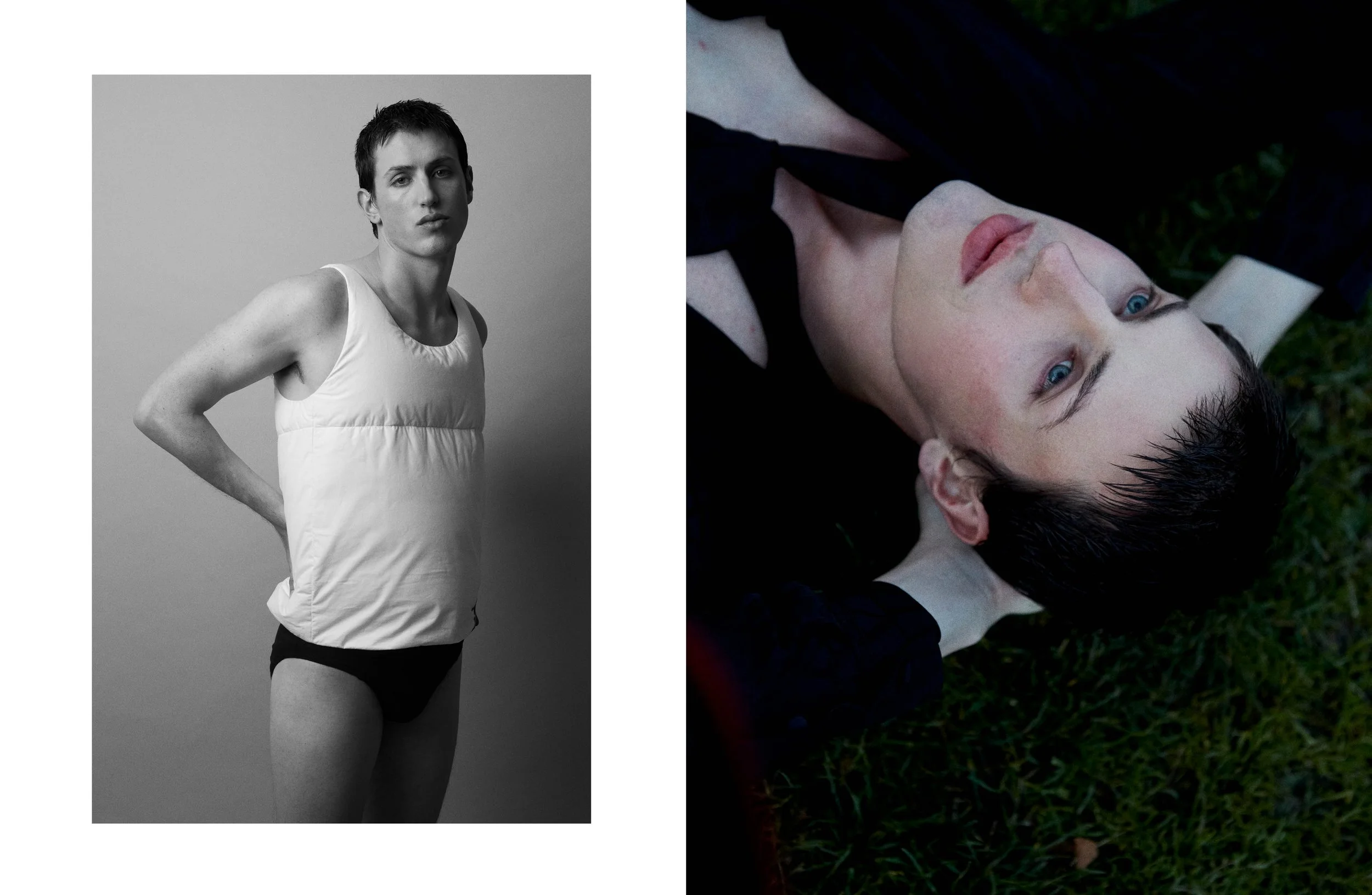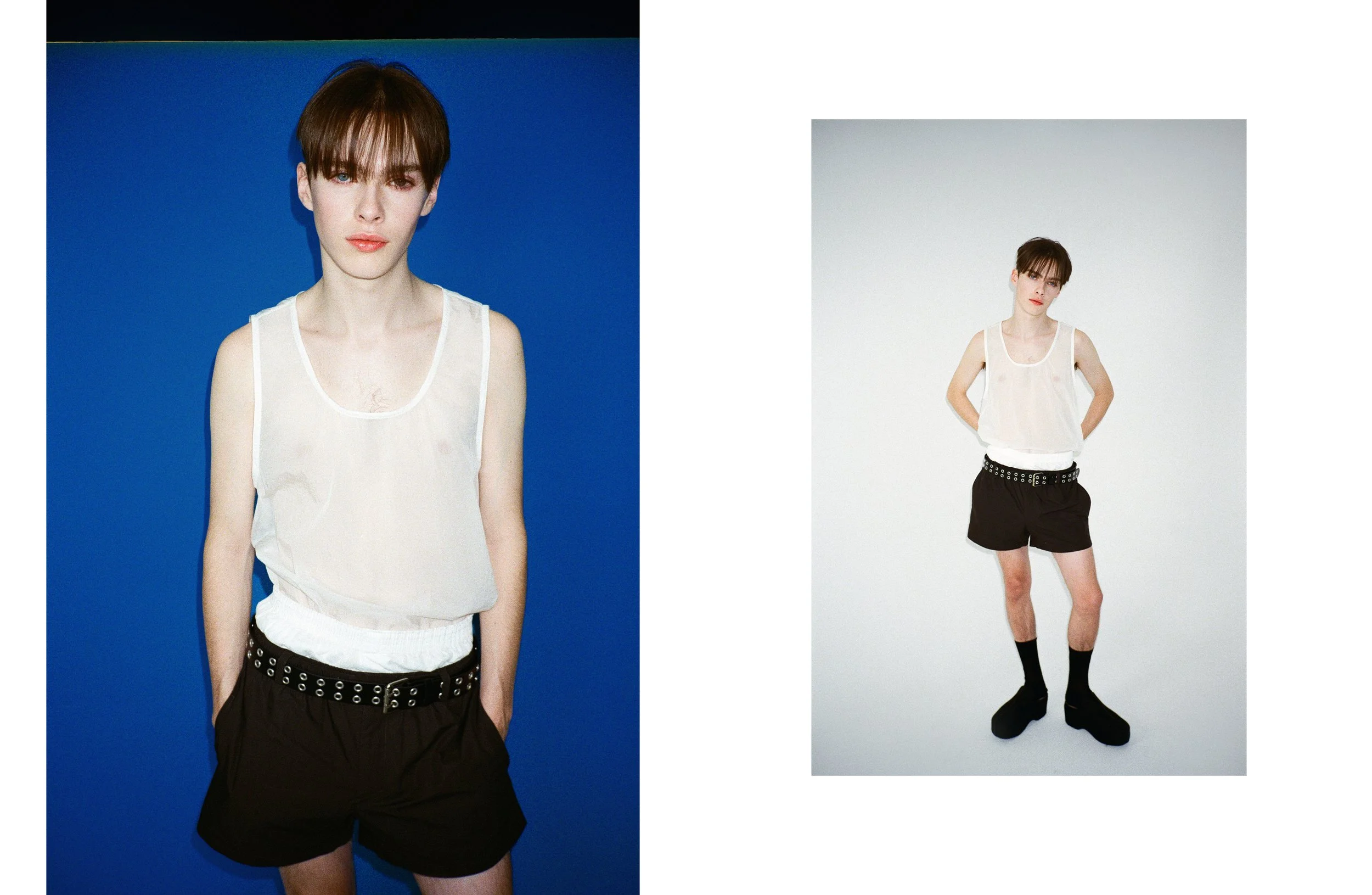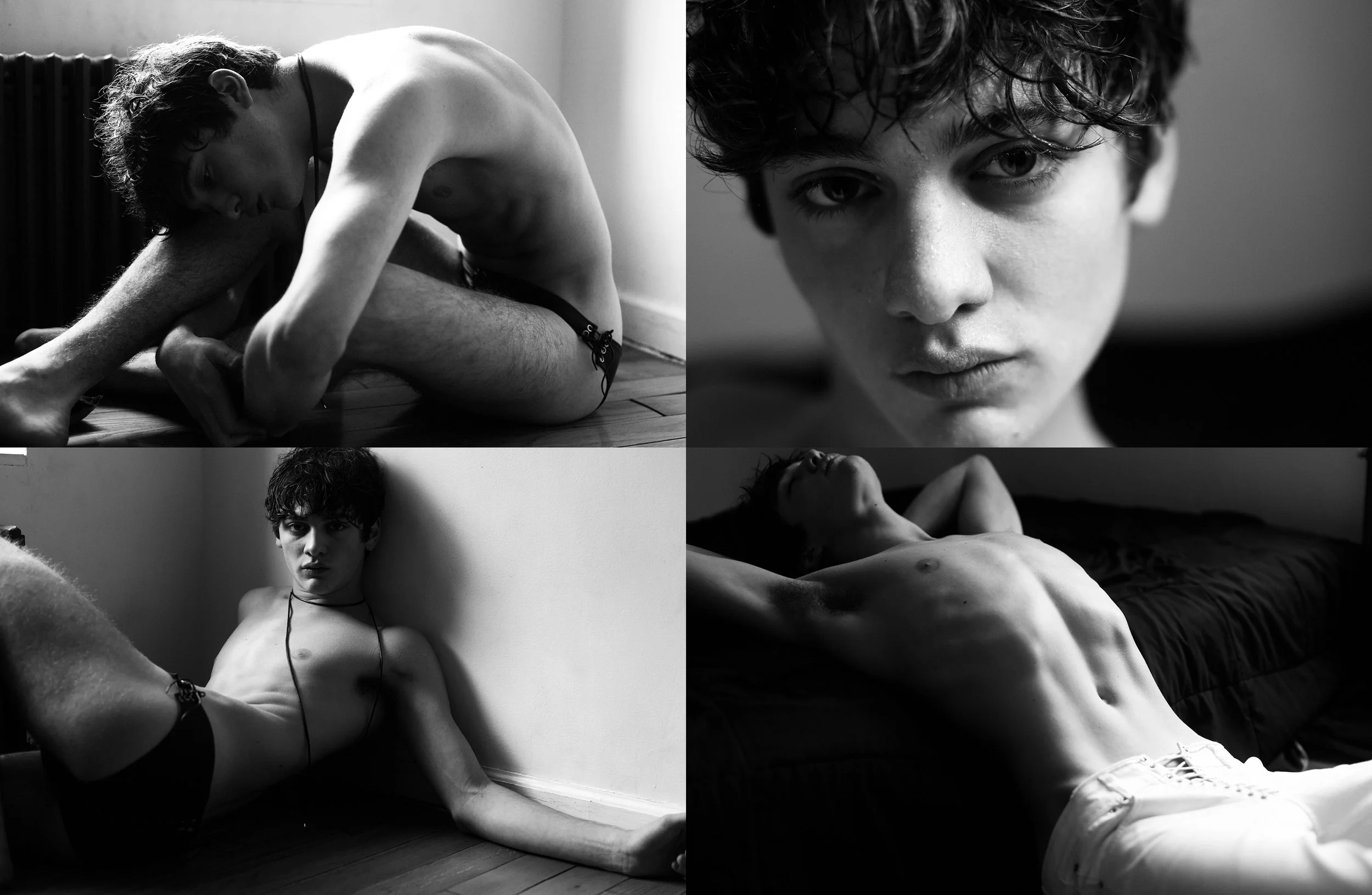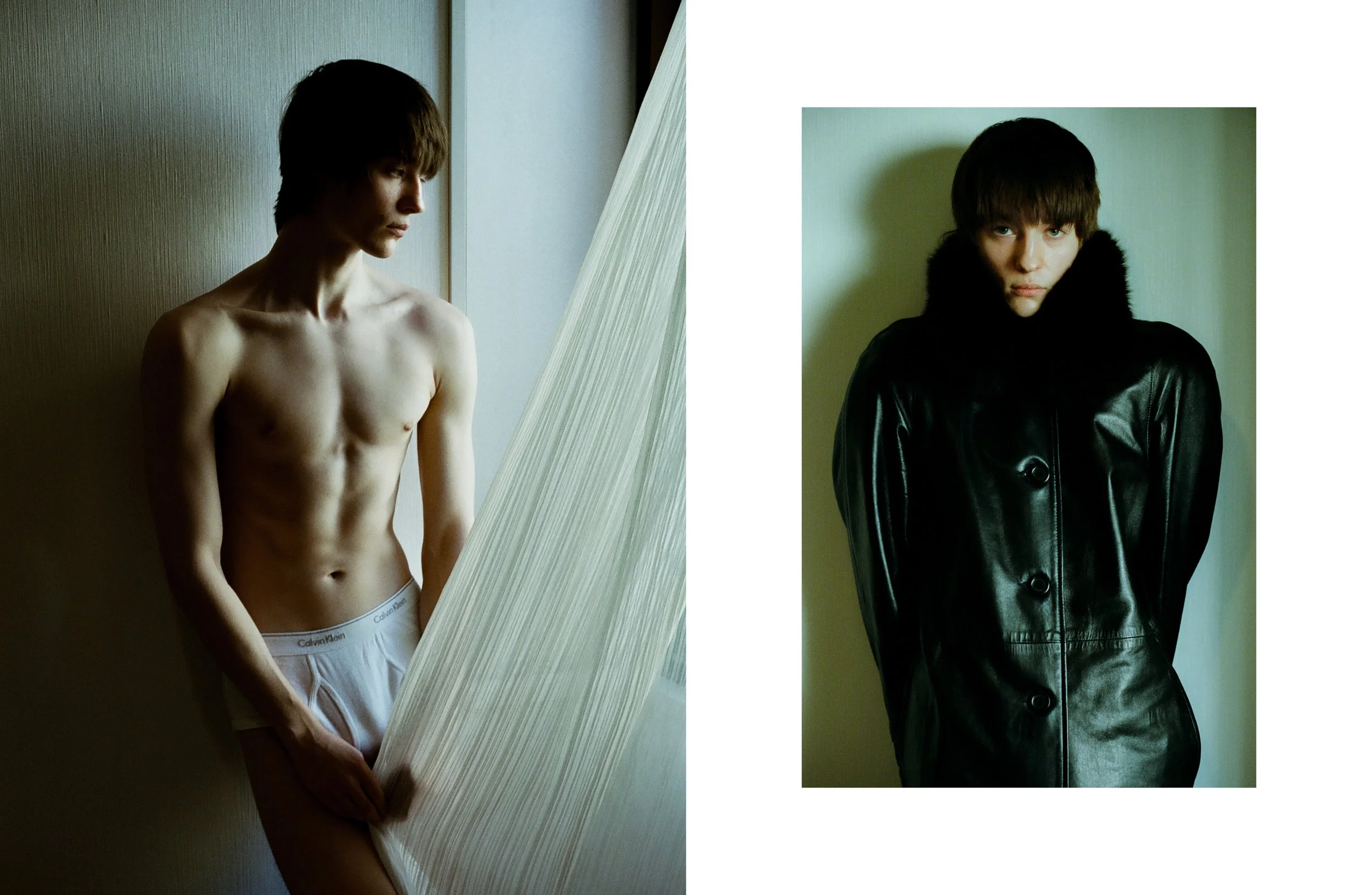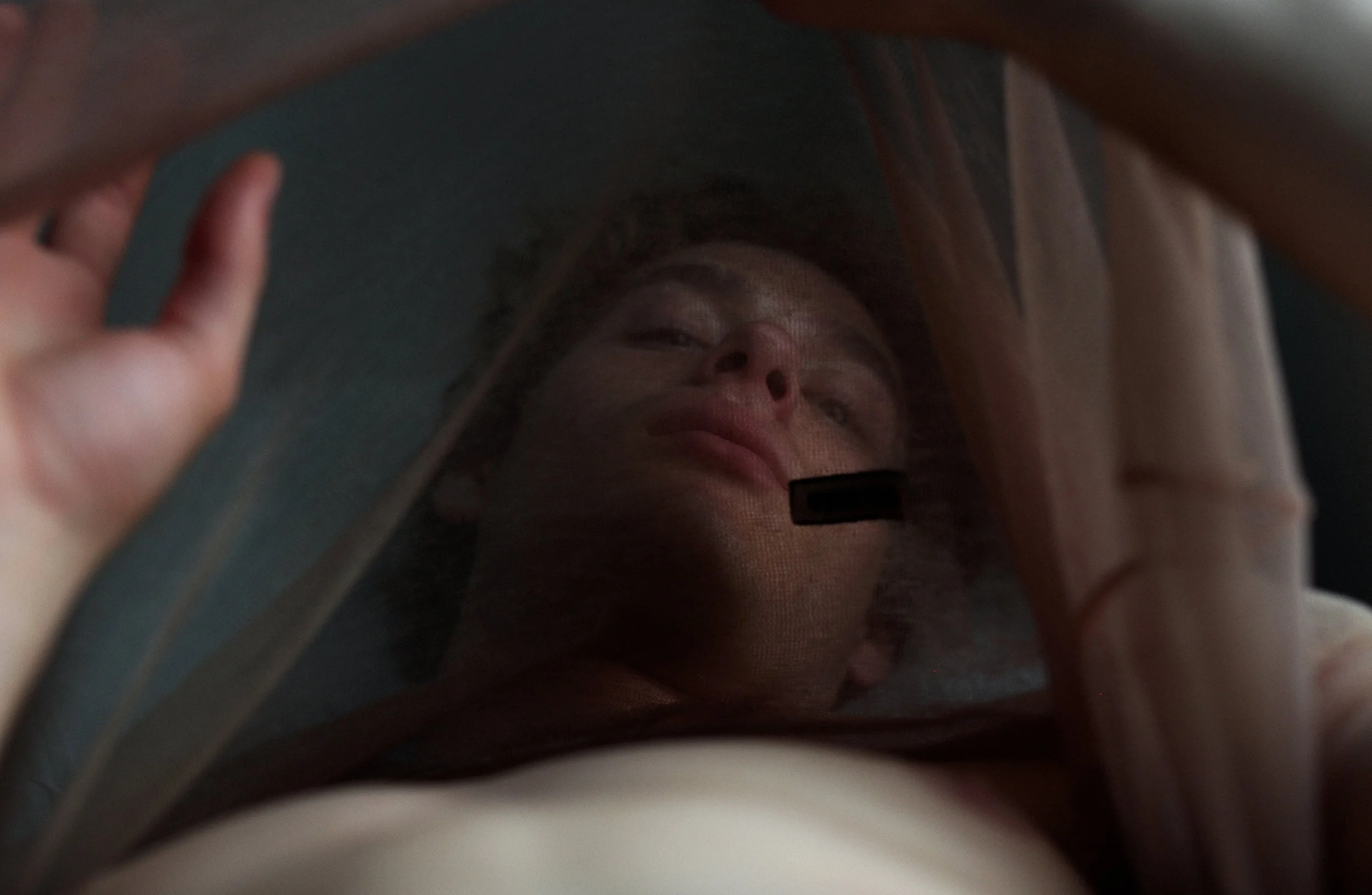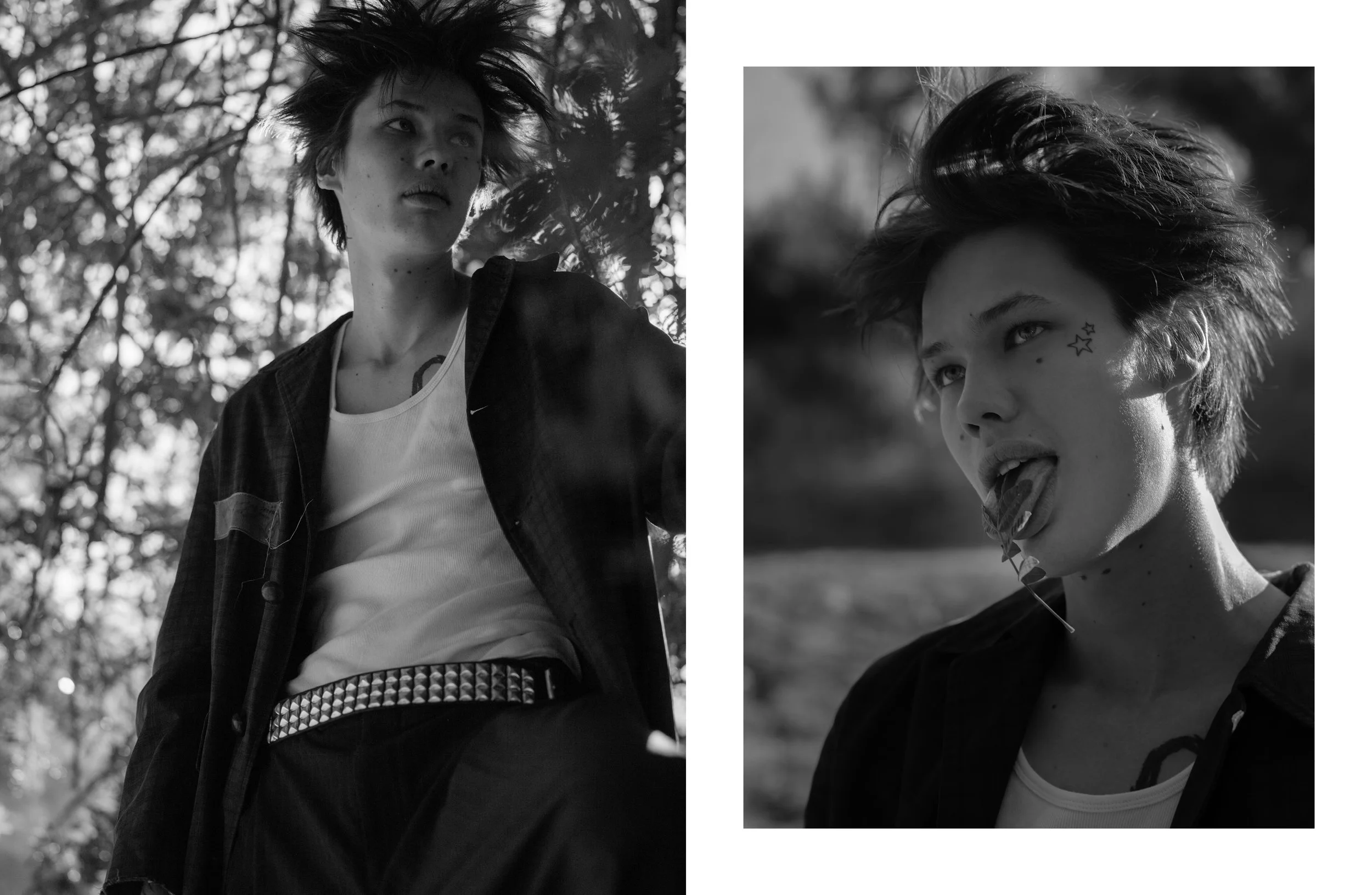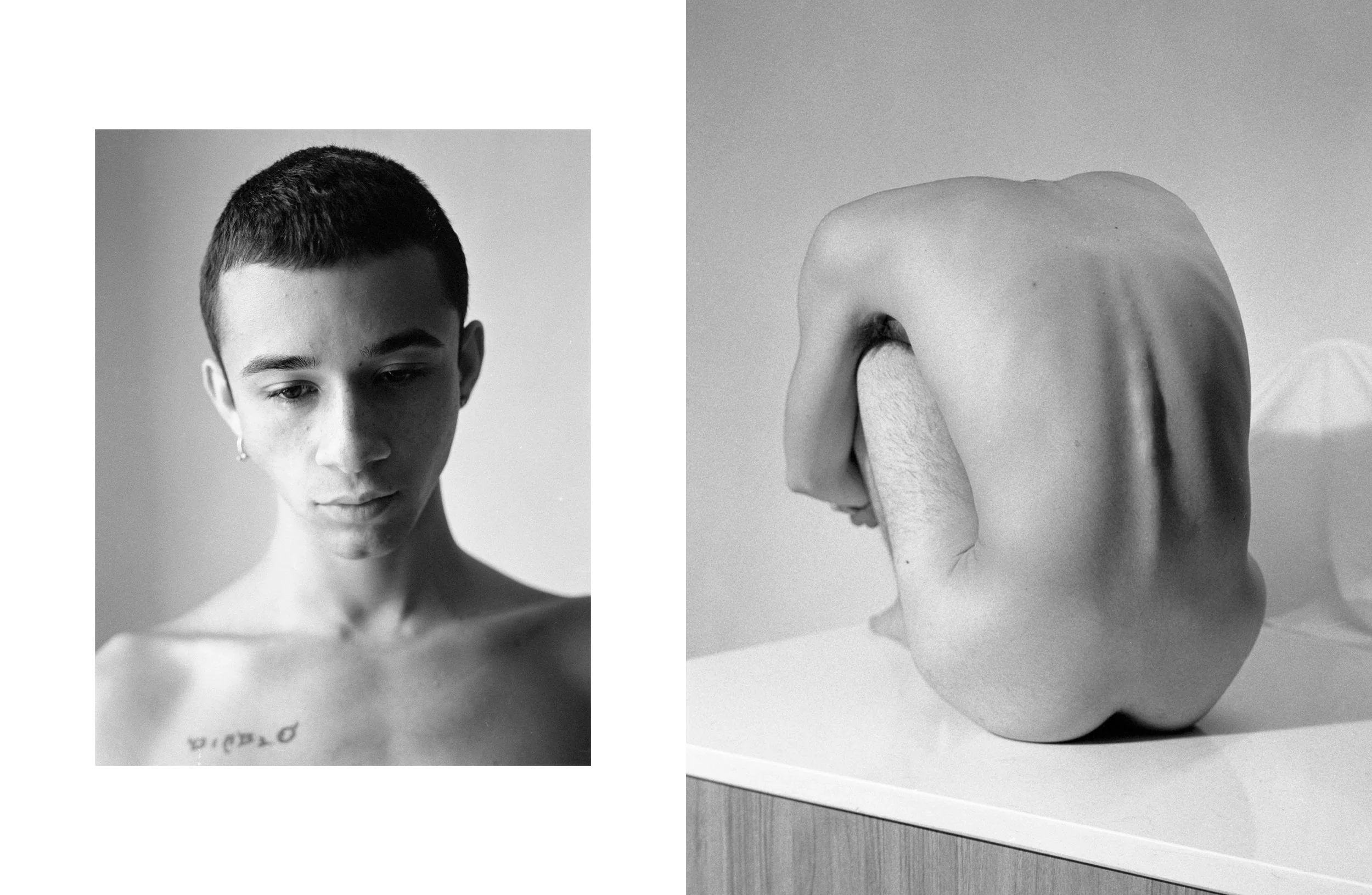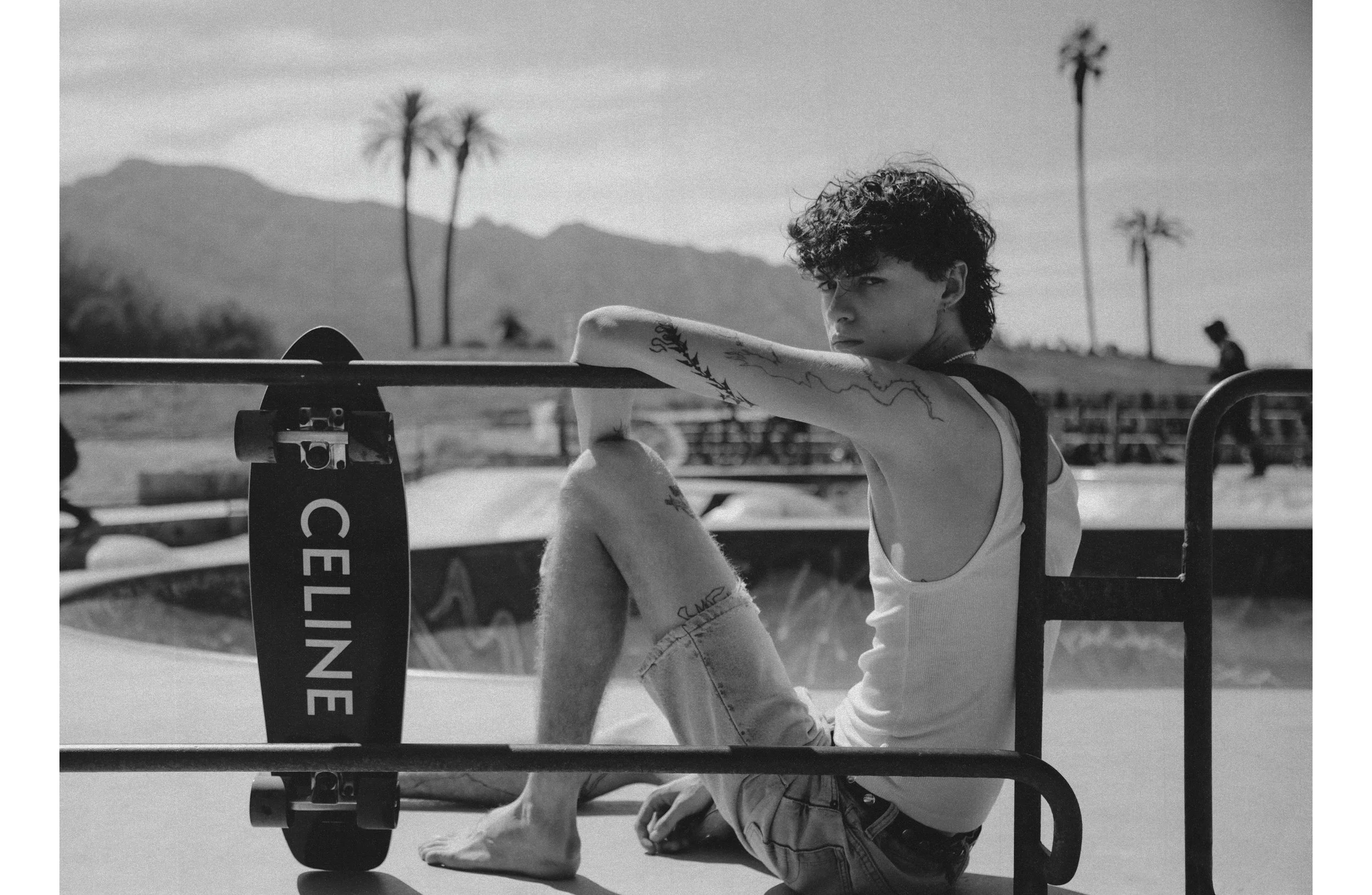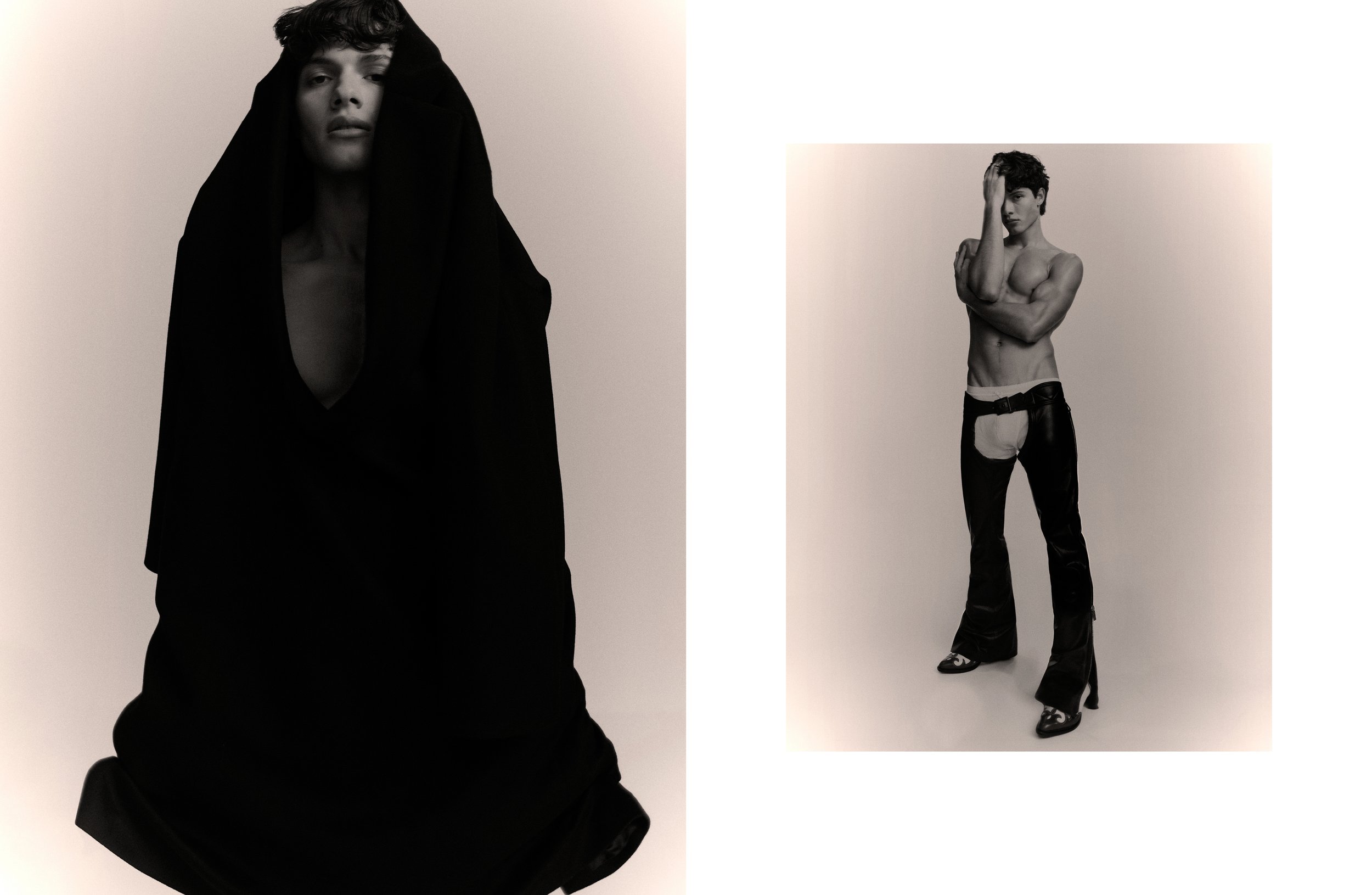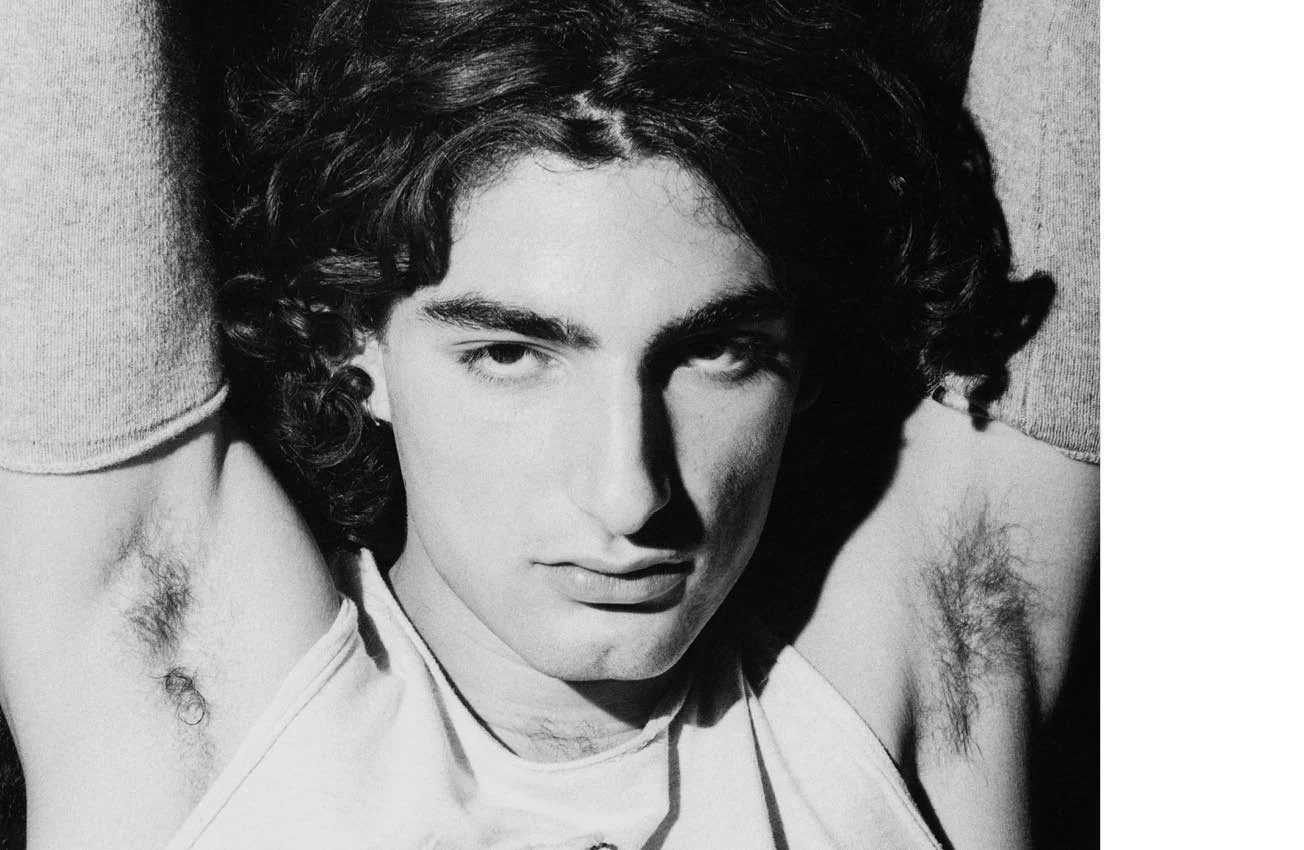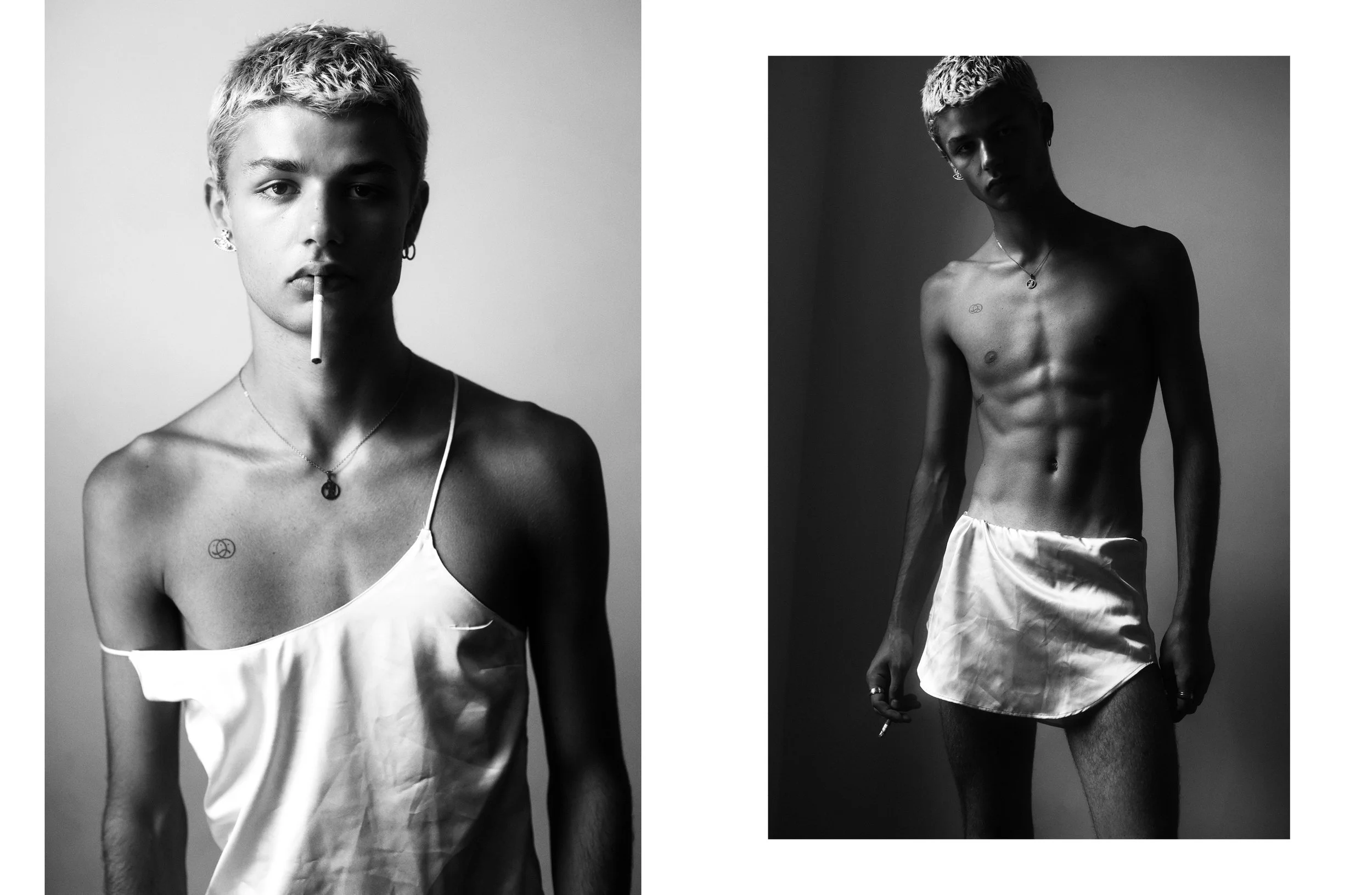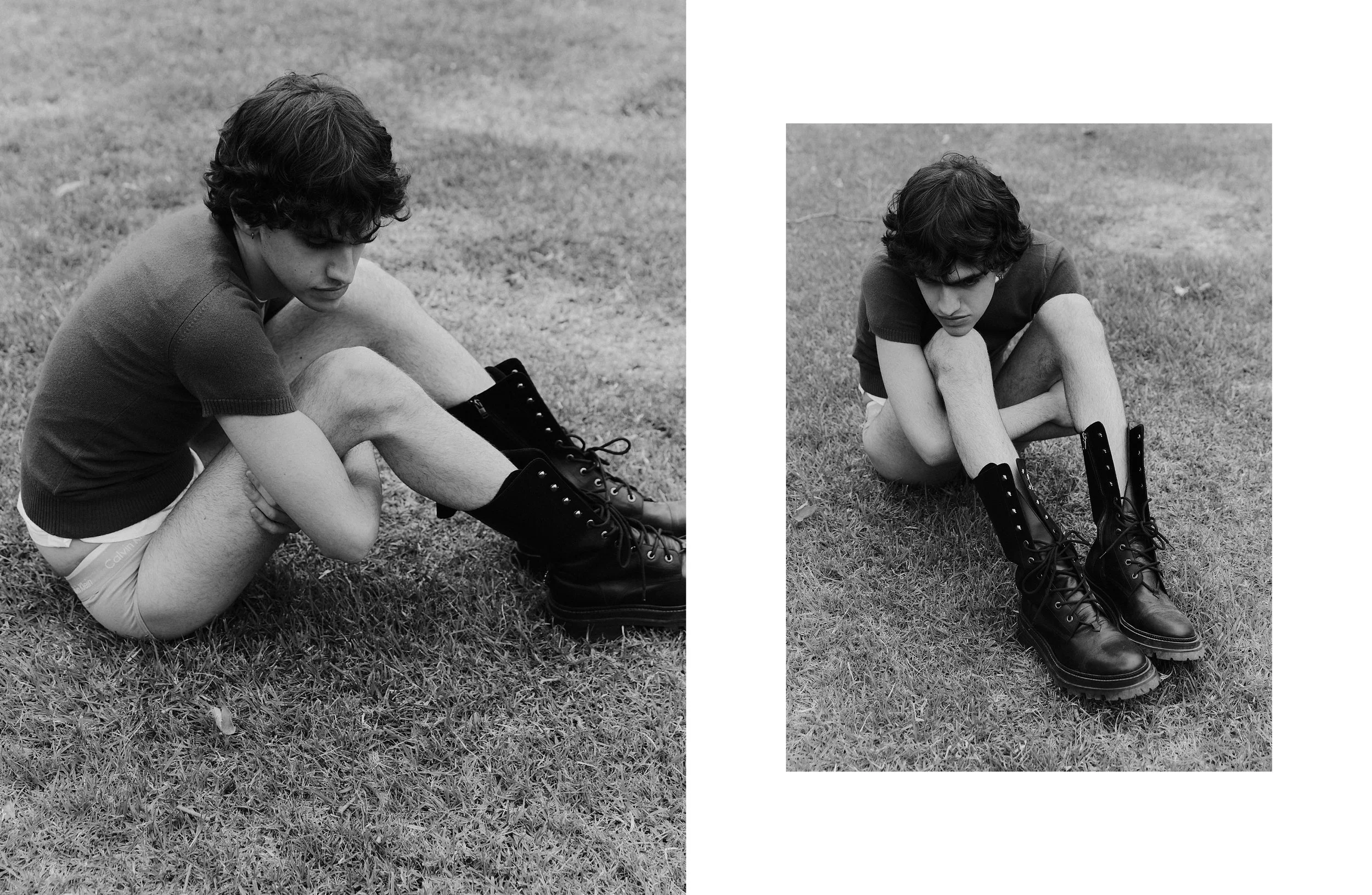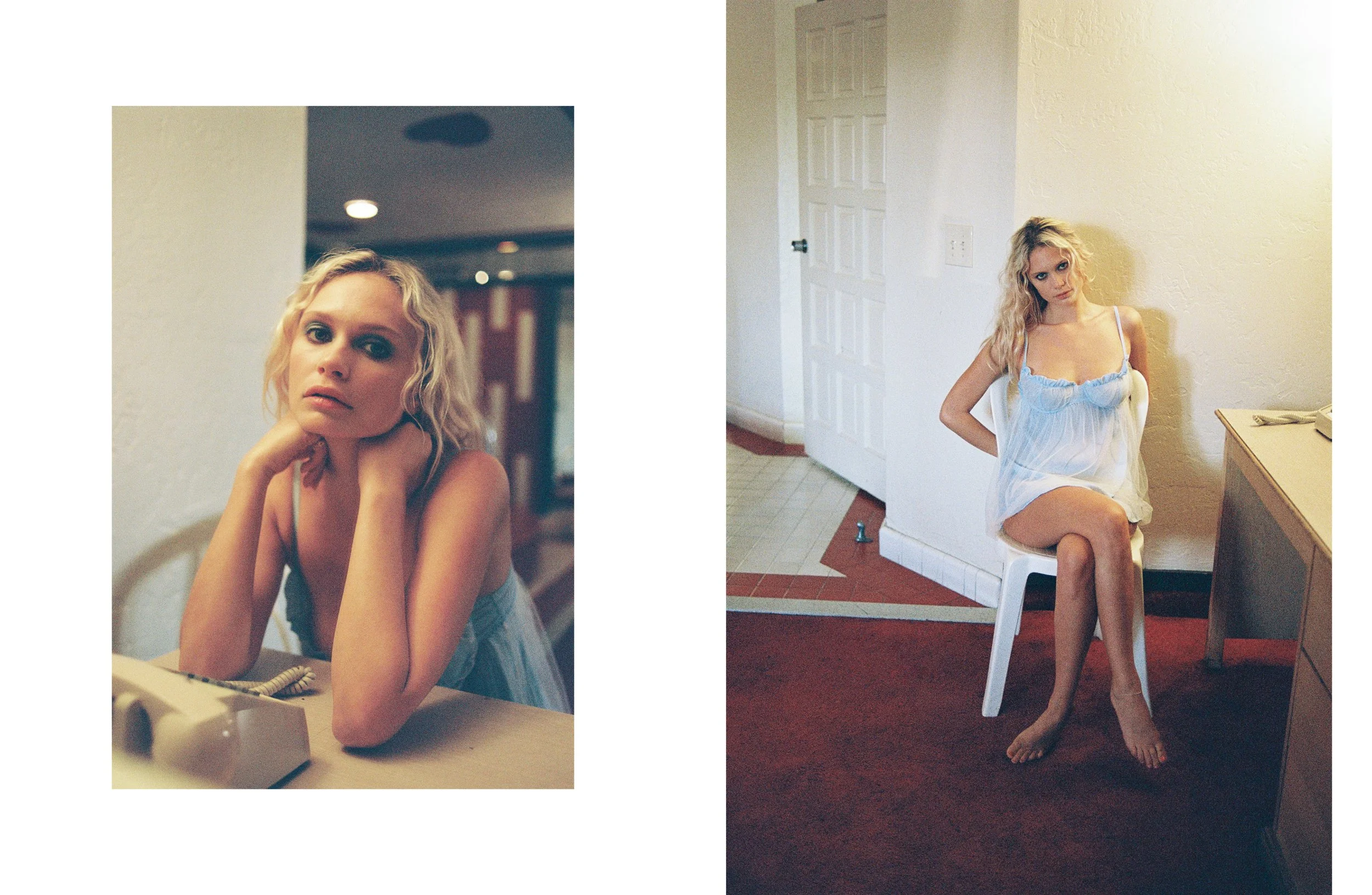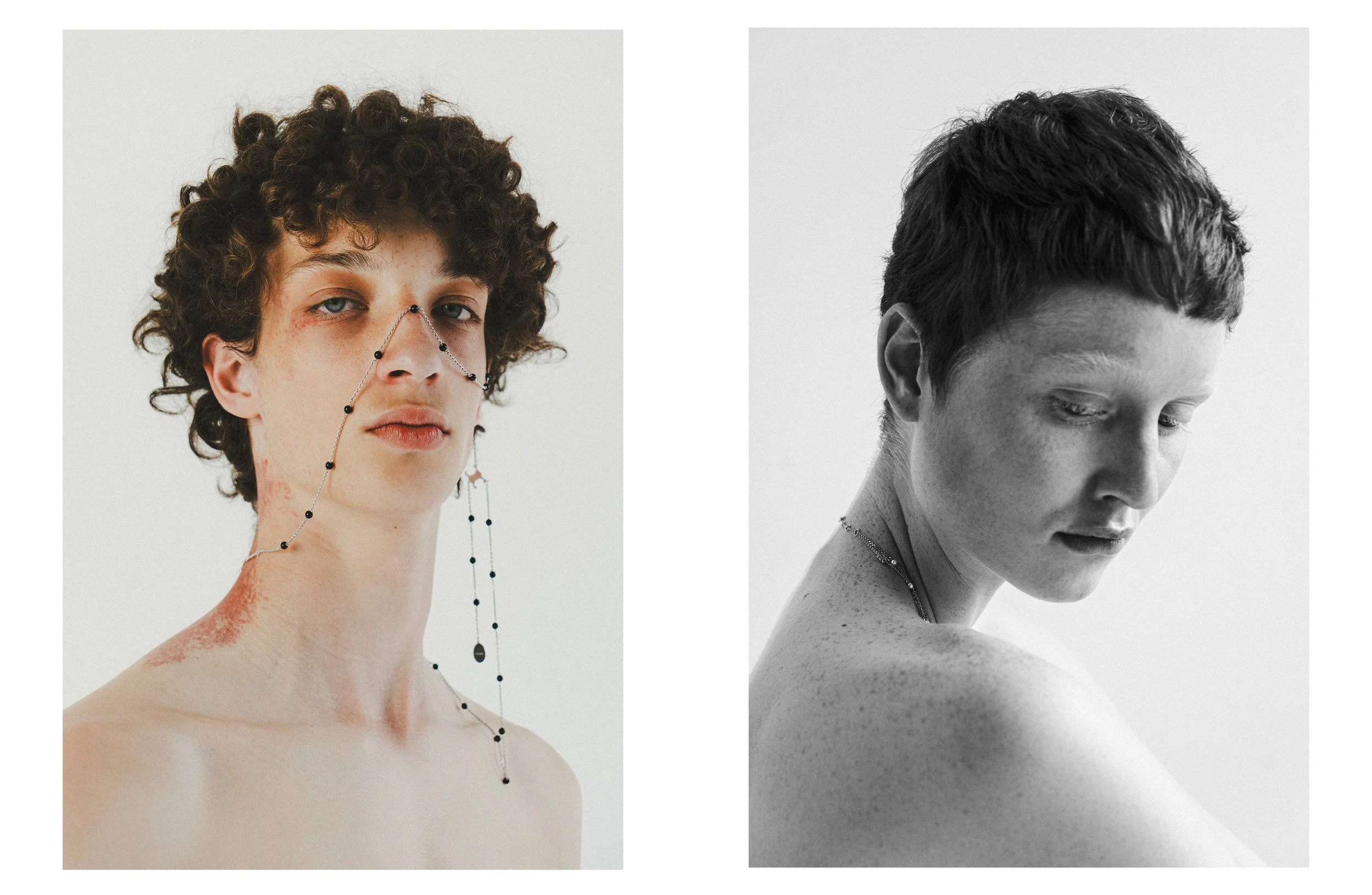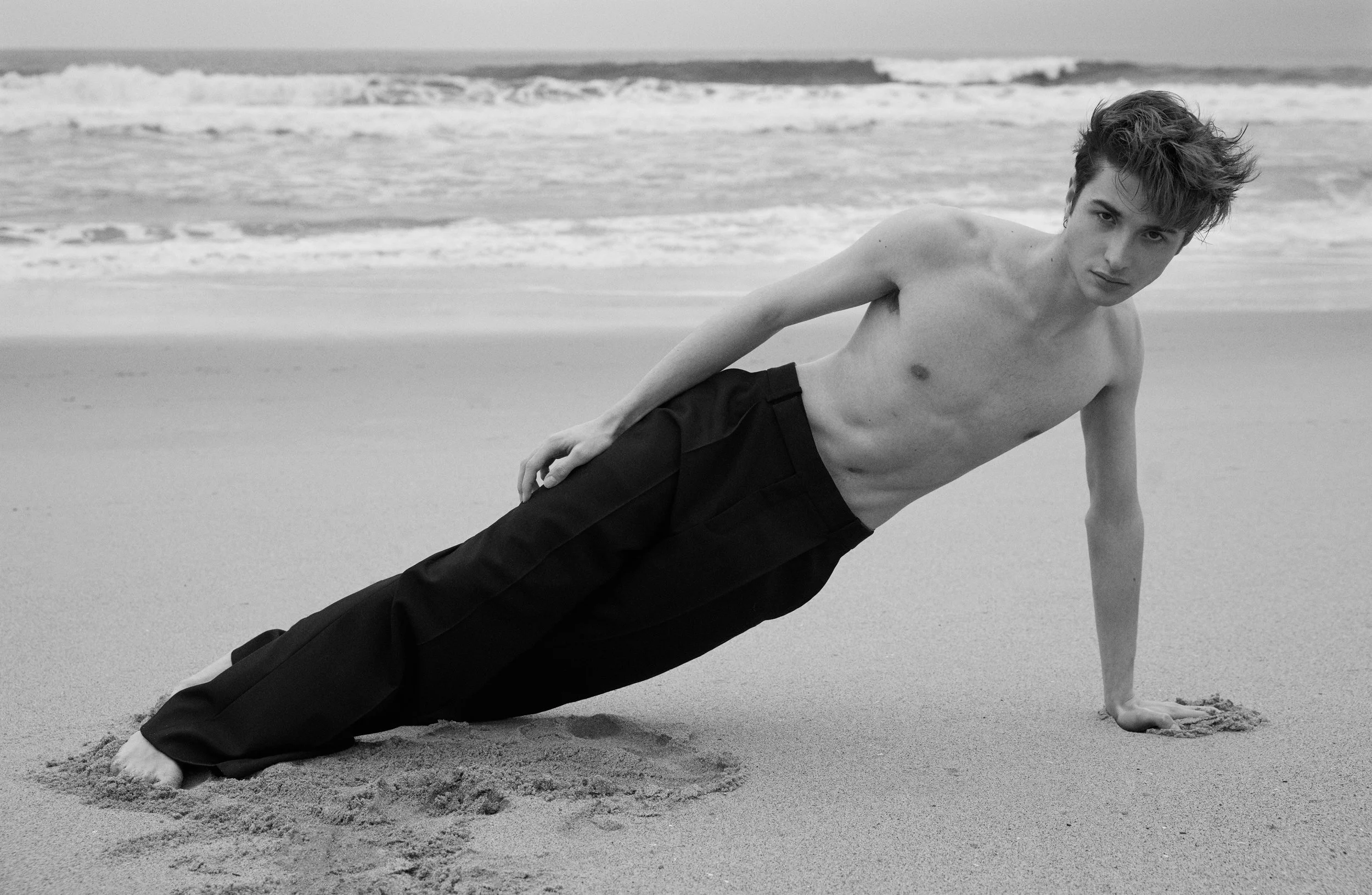An intimate talk with Lukas Dhont & Victor Polster
Brussels, October 2018
When young Belgian director Lukas Dhont launched his first full-length movie, he never dared to dream it would leave such an impact.
The first-ever screening of Girl,
his film about the transgender ballet dancer Lara, at Cannes film festival caused a deafening applause, great emotions and many awards, a list that is growing bigger every day.
We met with Lukas and his leading actor, the sixteen-year-old ballet dancer Victor Polster, for an intimate talk on acting, identity and the world of cinema today.
Laura Bonne: How did you know Victor was the right person to play the role of Lara?
Lukas Dhont: The casting was a difficult process. The actor we needed had to be
able not only to act in a way that is elegant and complex, but to dance at a very high level as well. All these elements created an impossible mix of features. We casted for half a year and saw 500 adolescents: trans girls, boys, girls... but we still didn’t find the right profile. Only when choreographer Sidi Larbi Cherkaoui joined the project, more dancers who reached the required level showed themselves interested. One of them was Victor, who was then 14 years old. I vividly remember the first time I saw him. He was part of one of the dance casting groups, and the moment he entered, me and the whole team instantly took notice of him. He had something magnetic, something angelic. When he started dancing, I knew he was unique and very close to the role. I kept his picture as my desktop background for a week. The feeling I had stayed, and I knew it had to be him.
LB: Did you immediately want to play that main part, Victor?
Victor Polster: I obviously hadn’t thought about it. I just came there because working with Sidi Larbi Cherkaoui seemed like a great opportunity. Acting appealed to me, but I was afraid to injure myself and not to be able to dance anymore.
LD: Victor is used to train as a boy; only girls do pointe work. To be able to dance as Lara, Victor trained for three months, ten hours a week. Next to that, all dance scenes were shot during the first six shooting days, which made it extra intense for Victor.
The biggest challenge was: how do we make sure he can do all dance scenes himself, without getting injured?
I vividly remembe
r the first time I saw Victor. He had something magnetic, something angelic.
LD.
LB: Victor, how was it to make mistakes deliberately?
VP: I didn’t want to do it, because I wanted to look good as a dancer.
LD: Yet, it wasn’t about dancing good or bad in the movie. It was about something dramatic. When I asked Victor to fall while dancing, he just wouldn’t do it. [laughs]
LB: How did you support Victor during his first acting performances?
LD: As a film director, I’m responsible for the actors to perform as good as possible. Arieh Worthalter, who plays the role of the father, is an actor who relies upon his technique. Victor is a dancer, who has an enormous expression and way of communicating through his body, but he doesn’t have the technique to evoke emotions for ten takes long. Both of them require another way of directing. With Victor, I evoked these emotions by putting him in situations that felt real to him. A good example is the birthday party scene, where the girls push Lara to her limit. It was a very intense, confronting moment to play for Victor. We had talked about it before, but hadn’t rehearsed it and I chose to film it the first time we did the scene. It was a hard moment for Victor, but an easier moment for him as an actor.
VP: I felt all those things for real at that moment. But it was necessary, because
I wouldn’t have been able to reach those emotions at that moment.
Playing it was intense, but I didn’t necessarily take those emotions home.
VP.
LB: Victor, Girl was shot when you were between 14 and 16 years old. How do you deal with playing and feeling such strong emotions at such a young age?
VP: Playing it was intense, but I didn’t necessarily take those emotions home.
LD: Although we went for strong emotions, we made sure we could leave them before going home. After the birthday party scene, we took our time to process all of it. There can be lots of tension, but to discharge after playing a scene is at least as important. Next to that, Victor is very mature for his age. He and the other dancers are training for a high-level dancing career from a very young age, which makes them extremely disciplined and very professional.
LB: The idea for Girl came from the story of a real transgender woman, Nora Monsecour. What made her story so inspiring for you, Lukas?
LD: The moment when the story came to me was very important. I was 18 and found myself in this dilemma of being myself versus fitting in. I read an article about Nora, a girl who wanted to be a ballet dancer, but she was born in a boy’s body. I admired her, because she was someone who radically chose to be herself, something I couldn’t do at that time. Soon after, everything seemed to fall into place: a young, fifteen-year-old trans girl who’s trying to find her spot in the binary ballet world of boys versus girls. It was the perfect metaphor, a cinematic idea.
LB: I can imagine the success of the movie transcends all expectations.
LD: I was so afraid. I’ve known that I wanted to make movies since I was little, so I’ve been following the film festival of Cannes for quite some time as well. It’s a festival that can be very loving, but it can be the opposite as well: it can break a movie in two. When I got that call from them, I felt happy and scared at the same time. We just finished editing, and Girl was to be screened for the first time in front of an audience in Cannes. When it was over, I closed my eyes and just listened what was going to happen. There were two possibilities: the audience would either love it, or hate it. It was such a vulnerable moment for me. I had never expected to get such a positive response. It was very, very emotional.
LB: Did the movie make you into an example for the LGBT community, Victor?
VP: I get a lot of responses through social media, and most of them are very positive. It gives me a lot of energy to hear that people are touched by the story.
LB: What is more important: social critique or an intimate story?
LD: For me, Girl is the portrait of a young transgender girl, a portrait of adolescence. It’s a portrait of identity as well, of looking for the most honest version of yourself. But the arena of that story is very considered: we’ve put that girl in the environment of a ballet school, which is a very gender specific system. That’s a critique, because the pressure it entails is very hard for Lara. That given became a tool and a metaphor. It’s not only about ballet, it’s about a whole system where a lot of people are being excluded, only because they cannot relate to that system. Divisions are very radical in our world, which does not fit for everyone. In that way, Girl is a critical movie, without wanting to be too much in your face.
For me, Girl is the portrait of a young transgender girl, a portrait of adolescence. It’s a portrait of identity as well, of looking for the most honest version of yourself.
LD.
LB: Do you think there would be a place for Lara in the real world?
VP: I think it would be as hard as it is in the movie. Nora had a lot of trouble in ballet school, because the school and the parents of her fellow students wouldn’t let her dance with the girls. They wanted her to stay with the boys. That’s the reason she quit ballet and built a career in modern dance.
LD: The original story is of an unbelievable inhumanity, but we deliberately chose not to show that side. It would create too much of a heroine versus the evil outside world situation, whereby the focus would shift from Lara to the outside world. In any case, I think the ballet world is still a very complex, binary and deep-rooted classical system.
LB: Are other scenes based on Nora’s story?
LD: A lot of them are. Next to the fact that we took away the school conflict, the movie “is” Nora. The way she used to look at her body, the relationship with her dad: a lot of it comes from Nora. The way she developed from the time I met her until now is unbelievable. She used to not want anyone to know that this story is based on her, but she managed to accept it and let people know it is hers.
LB: Girl is coming out on Netflix in the U.S. How do you look at cinema today?
LD: It’s a very double perspective. I’m very aware of what film means to me and I believe that what we bring has to be shown on big screen. I believe strongly in the physical, sensory and auditory experience of cinema. I also think we have to stimulate younger generations to continue to go to cinema. In that way, Netflix is no good news. But on the other hand, let’s not be naïve and ignore that young people want to absorb and consume constantly, also through smaller screens. Netflix is also the reason why Girl might reach people who would never have gone to the cinema to watch it. Where we should go for, is a world where both exist simultaneously: Netflix that doesn’t prevent movies from being screened in cinema, and a cinema experience that is shared with other screens.
LB: A lot of directors say that it’s hard to get budgets these days, while Netflix is known for its carte blanche system. Do you think Netflix can play an emancipating role in the audiovisual landscape of today?
LD: That is exactly the reason why I think Netflix is only going to grow. The American studio system is still very hierarchic: they have the final cut, they make the rules. Netflix has the budgets to give carte blanche. That is why important directors are moving to Netflix and their movies become Netflix Originals. And if Netflix is going to win Oscars — and I’m kind of sure that they will — it will have been proven that it is possible to make high category movies in a new way.
LB: What is for you the most meaningful moment in the movie?
LD: There’s this scene where Lara and her father have an intimate conversation at night. They are lying in bed and talk about time: how one must try to be in the present instead of trying to accelerate everything, whereas that is exactly what a teenager would want to do sometimes. My favourite line is this one: “I don’t want to be an example, I just want to be a girl”.
LB: Which lessons do you take with you to your next movie?
LD: To embrace the things you don’t know and be eager to find them out.
Archive from our Issue 6 SS19
…
Interview by Laura Bonne
Photography by Nagib Chtaïb
Fashion by Michaël Marson
Set design by Justine Verplanke
Hair by Ed Moeland at Artist Unit
Make-Up by Jenneke Croubels
Production by Michaël Marson
Production assistant Xavier Bourgeois
Photographer’s assistant Samir Dari
All clothes BERLUTI by Kris Van Assche
…


